Norwich MP calls for "official investigation" into UEA finances
Jamie Bryson News Editor
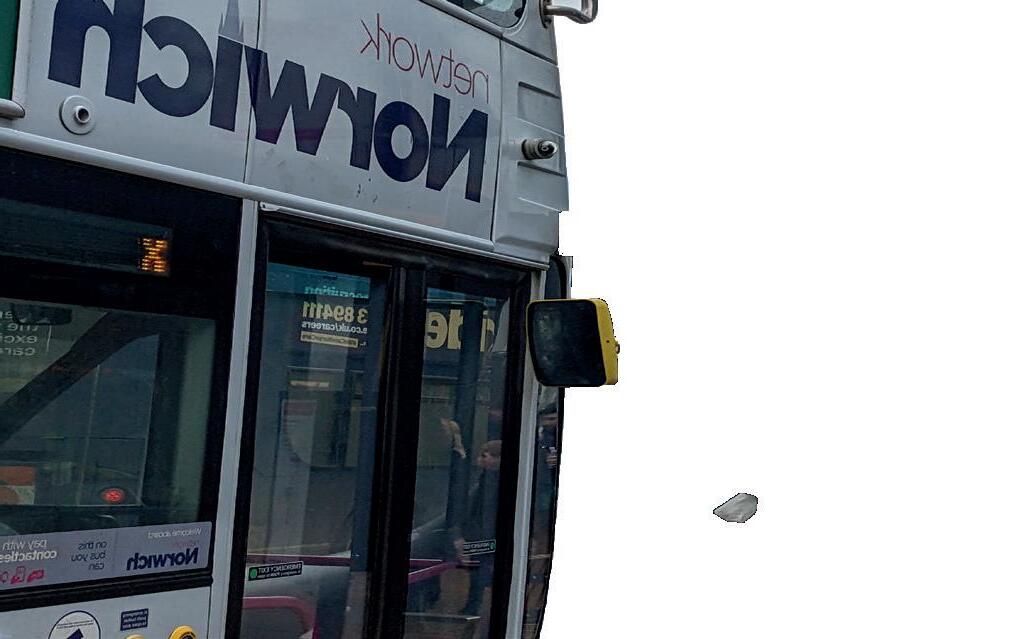
Several significant events have shaken the very foundations of UEA over the past month.
Concrete has sought to set out a chronological timeline of these events based upon as much factual information and diversity of opinion as possible to provide clarity to our readers at this critical time.
22February:Deficitrisesto£30million
On Wednesday, 22nd of February, it was revealed the university now faces a revised budget deficit of £30m for 2023/2024 - having risen by £7 million since January. In an all-staff email, the then Deputy Vice-Chancellor, Professor Christine Bovis-Cnossen, explained that the previously reported £23 million figure was calculated based on “figures set before the UCAS student application deadline at the end of January”. In short, the university has again missed its student recruitment targets for the next academic year - resulting in a substantial loss of revenue from tuition fees. The email also forecasted this deficit rising to £45 million over the next three years.
27 February: Vice-Chancellor David Richardsonresigns
On Monday 27th of February, students and staff were informed of the sudden resignation of Vice-Chancellor Professor David Richardson via an email from the Chair of the UEA Council (the governing body of the University), Dr Sally Howes. In a personal statement posted on My UEA, Prof. Richardson said, “I have been conscious of the need for a new vision for UEA since we began to emerge from Covid in 2021 and have deliberated whether I am the person to lead that vision or whether a new vision needs a new leader. After
15 years on the Executive Team and nine years as Vice-Chancellor, I have concluded now that the time has come for me to step away so that UEA can develop a new long-term vision.” Dr Howes also explained that Deputy VC Christine Bovis-Cnossen would temporarily take on the role whilst the council searched for a permanent replacement.
Speaking exclusively to Concrete, a UEA Professor (who asked to remain anonymous) expressed, “it is a good thing that the Vice-Chancellor has taken some responsibility and resigned (though I find it deeply regrettable that he couldn’t bring himself to actually apologise — and actually in writing take responsibility — in his leaving-statement), but the truth is that the handful of senior people who have been his closest advisers and deputies are just as responsible for this right royal mess.” Another member of academic staff (who asked to remain anonymous) also expressed, “UEA UCU (University and College Union) very clearly voted no confidence in the then VC, the Deputy VC and the CRO (Chief Resource Officer Ian Callaghan). Of course, it was the VC who had put the others in place, but there has been an overall failure in leadership. Maybe it is not feasible for all of them to go at once, but I would expect the other two to also take responsibility in a similar manner soon.”
Questions raised in the House of Commons
During a Commons question session with the Minister of State for Higher Education, Robert Halfon, Clive Lewis - Labour MP for Norwich South - made the following address: “Is the Secretary of State and her department aware of the severe financial crisis engulfing the University of East Anglia - one so severe that the Vice-Chancellor has today resigned? This will have a dramatic impact on the regional economy…As such, will the Minister agree to meet with me and a
delegation from UEA to discuss this most critical issue as soon as possible?”. The Minister promptly responded, “Yes, I’d be very happy to meet with the honourable gentleman, sooner rather than later”.
28 February: An open letter signed by 123 staff members warns of“irreparable harm"
In an open letter leaked to the Eastern Daily Press, 123 academic staff expressed they felt the situation was “now out of control” and feared “that if the current chaos continues, our university will suffer irreparable harm." Signatories went on to suggest that the proposed business restructuring of the university (including compulsory redundancies) - would mean “UEA will no longer strive for excellence in teaching or research”.
The letter also suggested that at least two faculties would be turned into teachingintensive “cash cows” (as opposed to investment in current research-led study), which would have a "disastrous impact" on student recruitment and could raise the threat of “full insolvency”. Furthermore, the academics accused the Executive team of being "a small clique of non-academic managers". Concrete asked one signatory, Dr Rupert Read - an associate professor of Philosophy - why he believed this to be the case, to which he responded, “During the 24 years I have been at UEA, academic governance of the University has been reduced in power, and more and more decisions have been taken by very well-remunerated senior managers (plus management consultants they have periodically hired in, rather than asking academics for advice on how to run our own affairs better). Now we end up in this mess. Draw your own conclusions.”

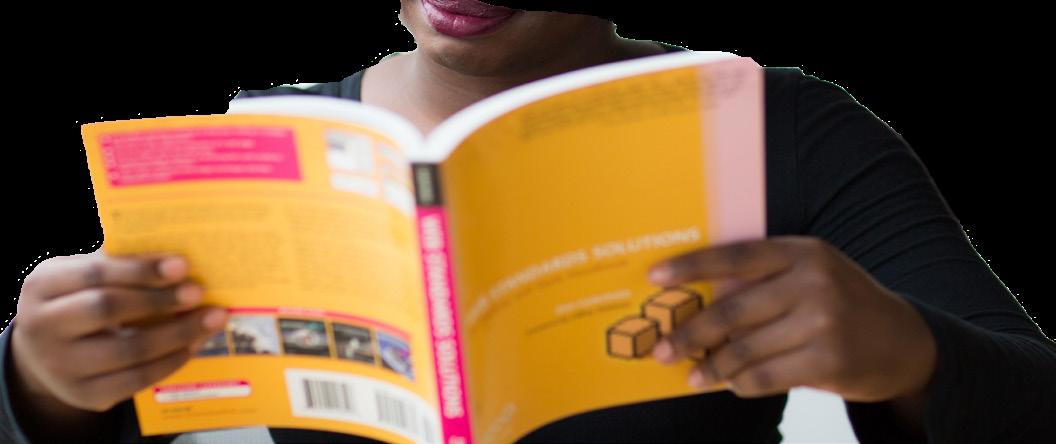
1 March: Senior leaders say open letter made“incorrect”claims
In response to the open letter, Acting Vice-Chancellor Christine Bovis-Cnossen
said, “I fully acknowledge the depth of feeling and concern which has led to so many senior staff writing this letter. These are very worrying times for all colleagues…Work is being undertaken across the University to address the financial situation, and we have been open about those challenges. No decisions have been taken regarding where any potential redundancies may come or on the future vision or structure” and added, “Claims in the letter, including references to insolvency and to creating ‘teaching-intensive cash cows’, are simply incorrect.”
5 March: Clive Lewis MP calls on Governmenttointervene
In conversation with Greatest Hits Radio, the Norwich South MP called on the Government to intervene in what he labelled a potential "widespread institutional collapse" across Norfolk. Mr Lewis said, "You, the Government, need to help and find some support for the UEA because this will go against your objectives to invest in the East".
6 March:UEACouncildiscusscost-saving proposalsandinterimVCappointment


Members of the UEA Council (the university’s governing body) met on campus to discuss details of cost-saving proposals. In a follow-up email to all staff 48 hours later, Acting VC Bovis-Cnossen stated, “As we have already said, we expect that towards the end of April, we will be able to share more detail on the number of roles at risk, in which areas, and more information about the processes and timeframes”. The email also revealed that the University would delay the implementation of the minimum 3% pay rise for staff members for the current financial year by 11 months, as previously agreed nationally by the University and Colleges Employers Association. BovisCnossen explained that “there is a clause [in the agreement] that allows universities
with extenuating financial circumstances to defer implementation of the pay award by up to 11 months”. The Acting VC also informed staff that “by the end of March, we hope to have appointed a new Interim Vice-Chancellor with the ambition that they start in that role by the beginning of June or earlier”, and adding “We are seeking a candidate with the experience and skills in tackling strategic change and the financial challenges we face. We expect this person to be in post for around 18 to 24 months”.
8 March:UEAmeetingwiththeMinister of State for Higher Education and Clive LewisMP
A spokesperson from UEA confirmed that “Acting Vice-Chancellor Prof Christine Bovis-Cnossen, with others from UEA’s executive team, met The Rt. Hon. Robert Halfon MP, Minister for Higher Education, online with Norwich South MP Clive Lewis on Wednesday 8”, following a request made by Mr Lewis in the House of Commons in February. They added, “We look forward to the opportunity to engage with them again soon.” Concrete understands that the Minister emphasised he was only acting as an intermediary figure within a discussion between the employer and employee representatives. In response to asking for reassurances on the government’s ability to “step in financially” if required, Mr Lewis told Concrete that Mr Halfon stated, “We [the Department of Education] do not have a pot that universities under financial stress can get help from”. The Norwich South MP also asked the minister “to go away and find out if there is a way to conduct an official investigation into these failings”. It is understood the Minister of State will now write an official response to Mr Lewis regarding such questions put to him in the 45-minute meeting.
Continued on page 3...
The official student newspaper of the University of East Anglia | Established 1992 | Issue 393 | 14th March 2023
Bus services slashed pg. 4
12-13
Venue: Reads for International Women's Month pg. 9 Meet your new Full-time Officers! pg.
Bright days are ahead
Badriya Abdullah Deputy Editor
Reward and renewal
Libby Hargreaves Editor-in-Chief
I could talk about the impact of my last news piece, or even speculate about our incoming ViceChancellor- but I won’t. I want to use this space, and your time, to express my gratitude.
I was speaking to Matthew earlier this week, and the conversation got unexpectedly deep; it hit me just how far we had come as a team in such a short period of time, and just how soon we’ll have to handover our beloved paper- so next year’s team can make new mistakes, and learn even more.
I actually teared up as we thought this over.
Although it's been immensely stressful at times, I wouldn’t give up the past year for anything. It has
been a joy to work so closely with Matthew, Badriya and Louise, and to connect with the UEA community in a unique, and inspiring way. Our hard work has already been rewarded as we received four nominations from the Student Publication Association; we are in the running at the national awards for Emma (our Global Editor) and her fantastic contribution as a Concrete newbie, George’s wonderful magic mushroom piece, our Science Section (thanks again George), and of course ‘Best Publication’ as a whole. We’re all heading up to Glasgow at the end of the month to celebrate.
Providing we make it back alive, next issue- though you’ll still see my name in the Editor-in-Chief spotwe’ll be working jointly with the new team, and you’ll get a taste of their vision for the new year. I hope you welcome them in much the same way you welcomed a giddy, anxious Yorkshire lass with a lot to prove.
As I’m writing this, it is once again raining. Meanwhile my friend in Nottingham has texted there’s snow settling on the ground. It’s a strange manner of perspective that my creative writing brain has processed. Rain and snow are the same thing under different conditions – they both have their positives and negatives and consequences and effects. Sometimes they are welcome and sometimes they are a nuisance. My creative writing brain automatically wants to attribute this to ourselves in some kind of metaphor, but it also isn’t completely right yet. The conditions around us cause different effects on any given day. Some of them are positive, others are negative, but in the end we are all ourselves. I know I’ve been struggling a little this past few weeks, but things will pass and get better, slowly but surely.
For someone who has worked within Concrete for nearly two years, and is a creative writing student, this issue marks the first time I submitted a creative writing piece. For the first time, I felt like I had something that fit the brief perfectly marking Women’s History Month - two poems about my experience being a Black and Muslim woman in Britain. My submission was partly inspired by the themes of my Poetry dissertation, and partly due to me discovering another holiday that takes place between Black History Month (the American version being in
I wrote an editorial
Matthew Stothard Deputy Editor
I’m writing this having just come out of a careers’ talk which must have been one of the most depressing hours of my time at university. You start to wonder what the point is when local employers like UEA and BBC Local Radio who offer what I’d label, ‘jobs you’d actually like to do,’ start looking towards redundancies.
I’ve had enough of talking about UEA’s finances and what seems like a lack of jobs and money in anything vaguely fun. I’ve had enough of coming out of every room I enter on campus more disheartened than I was when I entered.
I’m sure some of you feel the same, so you know what, I’m going to spend the rest of this editorial talking about positive things for once.
Firstly, it was an absolute joy to visit the new exhibition about The Gloucester shipwreck at Norwich Castle for this issue! As you can read about in Home of the Wonderful, Professor Claire Jowitt, a historian in the School of History and LDC, has led what is a great example of the exciting and innovative research coming out of UEA’s humanities schools, and I would definitely recommend a visit (free for UEA students). On a slightly different note, I also got to review The Cher Show at the Theatre Royal which was great fun, and you can find that on our website!
Next up in Matthew’s good news, I managed to get Eurovision tickets! How I pulled that one off I don’t know, but it certainly provided a very pleasant antidote to all the current stress of third year on a Tuesday afternoon! Let’s talk about Mae Muller too! Our entry, I
Wrote A Song, is an absolute bop (and who knew Mae was the girl in the Grace Kelly music video?)! I would also recommend checking out Austria’s Who the Hell is Edgar?, a song that bizarrely (but brilliantly) uses possession by Edgar Allen Poe to discuss Spotify’s renumeration of artists…
Finally, just to highlight if you weren’t already aware that A Week in Concrete is back on Livewire1350 this term, every Wednesday at 5-6:30. A big thank you to Eve, George, Jamie and Ray who have all made excellent contributions so far, and especially to Louise for being a brilliant co-host (and also Alfie for his help when I thought I’d broken Livewire in the first two minutes)!
There, I guess it’s not all bad! Have a lovely break, and we’ll see you in May!
The University of East Anglia’s Official Student Newspaper since 1992
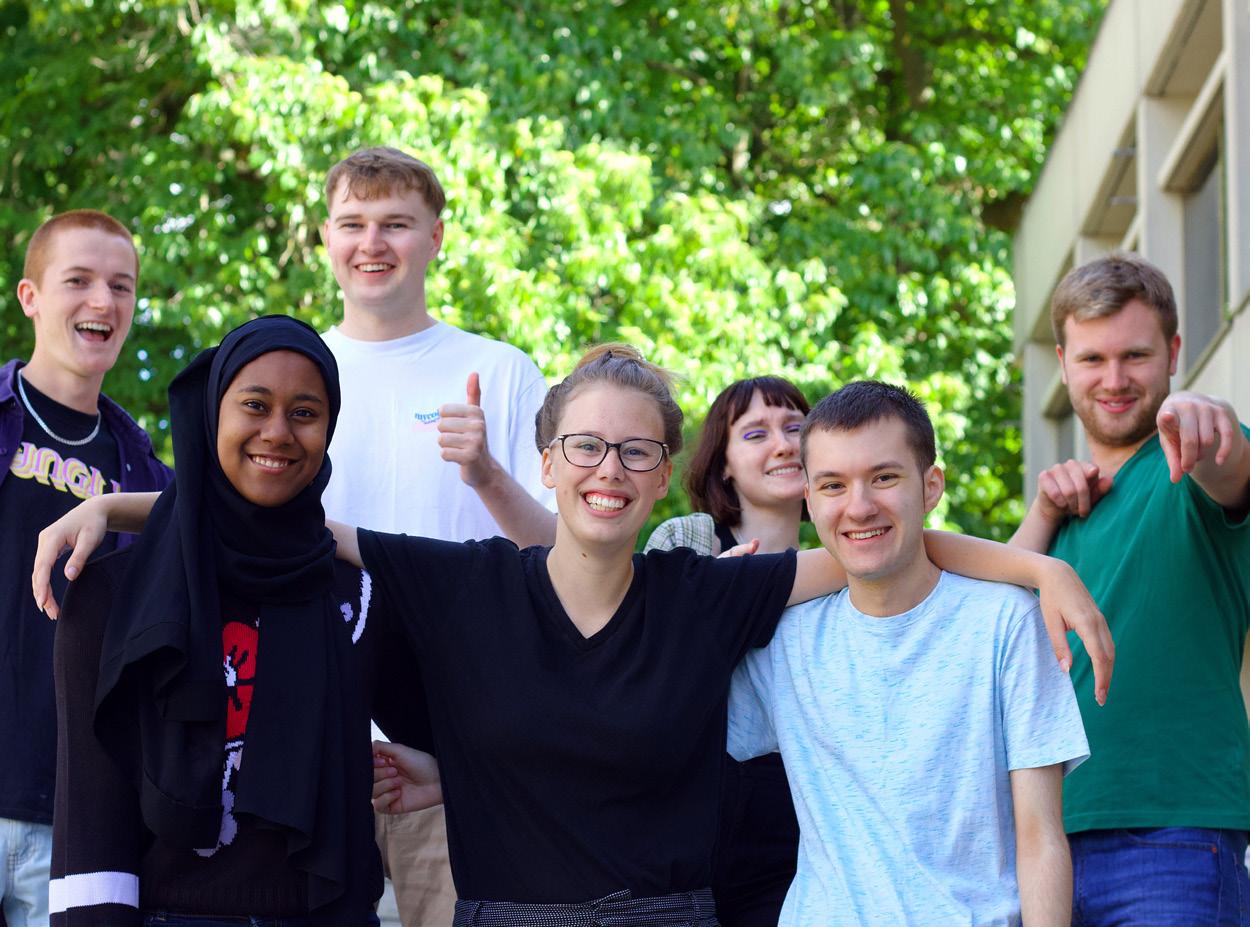
Tuesday 14th March2023 Issue 393
February) and Women’s History Month – Black Women’s History Week. From February 25th to March 3rd, a week is dedicated to celebrate black women around the world. One thing to think about a woman that inspires us, thus I saw it fitting to include a poem about me and my grandmother (Bibi in Swahili), who always stays in my heart despite being across the world (this is your public service reminder to call your grandma). The other poem is about my experiences becoming a full-time hijabi, which only started around this time last year. I hope that my poems resonate with you, and I apologise in advance for getting you to whip out google translate. That’s the heart of Concrete and all writing really. We take experiences and stories and bring them to you to encourage empathy, understanding and connection. That’s what got us on the shortlist for many awards at the Student Publication Awards, including best publication! I couldn’t be prouder of this team, it’s been a tumultuous year in the big world but also a very tumultuous year at UEA. From news, to travel and lifestyle, to fashion, to arts and all our sections in-between, everyone has worked insanely hard during tough times. To win at the SPA’s would be the cherry on top, but shouldn’t take away from the brilliant work that everyone has done. That being said, time for you to read some articles!
Union House University of East Anglia Norwich NR4 7TJ 01603 593466
www.concrete-online.co.uk
Editor-in-Chief
Libby Hargreaves concrete.editor@uea.ac.uk
Deputy Editors
Badriya Abdullah & Matthew Stothard
News
Jamie Bryson
Senior Writer: Eleanor Radford
Home of the Wonderful
Ronaldo Martins
Senior Writer: Alexandra Ashby
Global
Emma Darlington
Features
Sienna Norris
Comment
Eve Attwood
Science
George Barsted
Travel & Lifestyle
Finlay Porter
Senior Writer: Emily Goodwin
Sport
Dan Laughlan
Senior Writer: Drew Murphy
Social Media


Jess Blissitt
Charlotte Guillick
Bethan Rush
Online Editors
Kanon Higashi
Ore Adeyoola
Yashika Mathur
Concrete Photographer
Prakrita Rahman
concrete-online.co.uk
ConcreteUEA
ConcreteUEA
Cut-outs: Jamie Bryson, Unsplash, Unsplash
Venue Team
Louise Collins
Lily Boag
Ray Khawaja
Rosie Kyrin-White
Silver Constantinides
Clem Hailes
Tshequa Williams
Tabi Fielding
Jessica Clifford
Tom Porteus
Millie Smith-Clare
Alexandra Ashby
Rory Kettle
Editorial Enquiries, Complaints & Corrections concrete.editor@uea.ac.uk
No part of this newspaper may be reproduced by any means without the permission of the Editor-in-Chief, Libby Hargreaves. Published by the Union of UEA Students on behalf of Concrete. Concrete is a UUEAS society, but retains editorial independence as regards to any content. Opinions expressed herein are those of individual writers, not of Concrete or its editorial team.
14th March 2023 Editorial
Photo: Prakrita Rahman
...continued: the response from your leaders
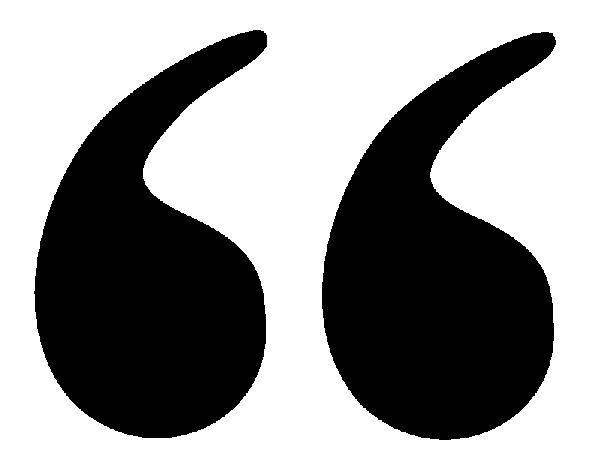 Jamie Bryson
News Editor
Jamie Bryson
News Editor
The Student Union’s message to concernedstudents
Concrete spoke to Taylor Sounes - SU Officer for Undergraduate Education, for her thoughts on these substantial issues' current and future effects on current students. Asked what message she would give to those concerned, Taylor said, “The message is that we are involved. We are doing everything we possibly can to try and mitigate the impact on students. I think generally, tell UEA what you're thinking through their platformsthrough ‘We're listening’, course and academic reps and emails. What you say genuinely informs what goes into the FAQs and emails to senior staff”.
the UEA Council - myself and Serene - and I am a member of the finance committee. So we are doing quite a lot of lobbying in that space. All of us are in conversations with our relevant departments about what they think the impact might be and how we mitigate that. Our main role is doing as much as we can to safeguard essential student services and, for me, making sure students already here receive all that they signed up for; it's about making sure that UEA has these at the front of their minds when they're making these decisions”.
The university's message to concernedstudents
Concrete also reached out to Emma Sutton-Pavli - Pro-Vice-Chancellor for Student Experience and Education - asking for her response to the growing concerns of many students about the future of their courses and life at UEA.
Her statement reads, “Since my last message to all students, there have been further changes…I realise that this will have been unsettling for many of our students at a time when they may already be feeling uncertain…
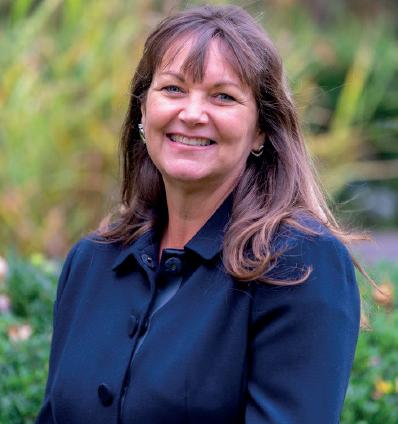

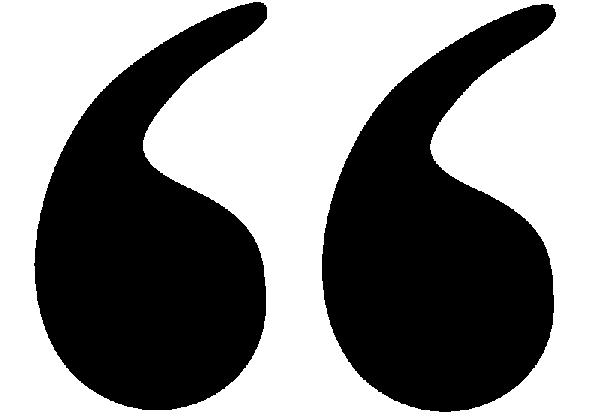
Questioned as to what specific part the SU body is playing in the ongoing discussions over UEA’s future, Taylor explained, “The big thing is that you've got two student members on
My team and I – working closely with the Students’ Union and our whole community - have an unwavering commitment to supporting you all through your studies, and that will not change”.
Regarding specific concerns over current course security, Emma emphasised, “If you’re currently on a course, it will continue to completion and provide the opportunity for you to complete and achieve the award towards which you’re working. You’ll continue to receive academic advice from a dedicated adviser or research supervisory team and will have access to a range of modules and enhancement opportunities. We’ll continue working hard to minimise any disruption to you. But please keep talking to us, through staff, through the Student Information Zone and through We’re Listening. If there are questions you’d like to see included in our FAQs, please let us know, and we will continue to keep you updated over the coming weeks.”
You can share your feedback through We’re Listening at https://my.uea. ac.uk/departments/communications/ student-voice/listening
4 - day working week trial - “a major breakthrough” for British workers?
Molly Warner News Writer
The trial of a four-day working week has just concluded after running for six months in Britain, from June to December 2022.
Over 60 companies took part in the trial, with 56 continuing with the new pattern, as employees report boosts in both their mental and physical health. The findings were reported to MPs in late February in an attempt to push the government to give all workers the right to a standard 32-hour working week.
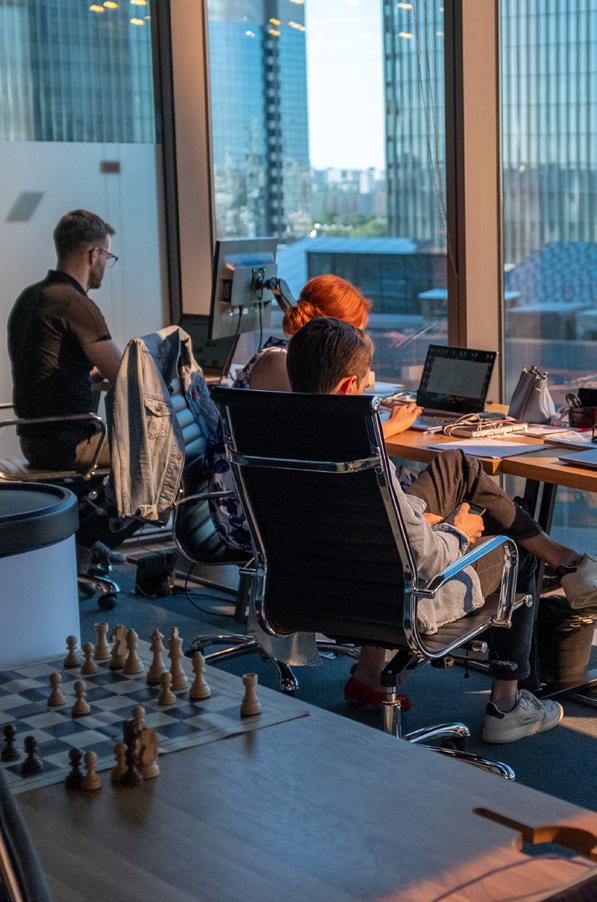
The trial - organised by 4 Day Week Global, as well as the UK’s 4 Day Week Campaign - saw 2,900 employees taking part and uncovered a range of benefits to working a day less.
Organisations from an array of industries took part in the pilot, from the marketing sector to a fish and chip shop in Norfolk.
Joe Ryle, the director of the 4 Day Week Campaign, called the trial a “major breakthrough movement”
and is urging more companies to reduce their working hours.
He added, “Across a wide variety of sectors, well-being has improved dramatically for staff; and business productivity has either been maintained or improved in nearly every case.”
The pilot followed a 100-80-100 model, which meant that the employees would receive 100% of their pay whilst working 80% of their normal hours, providing that they continue to give 100% of their efforts.
Altogether, the results of the trial were highly positive, with 39% of the staff saying that they were less stressed, 40% were sleeping better, and 54% found it easier to balance work and home responsibilities.
When employees were asked how they had utilised their extra time off, the most popular response was “life admin”, household chores and grocery shopping. Overall, providing time for leisure activities, in turn, boosts their mental health. As well as
this, companies’ revenue stayed broadly the same, with some even seeing a rise of 1.4% on average.
The results were presented to the House of Commons in late February after Labour MP Peter Dowd exclaimed that it was “time to change” to a 32-hour working week. Under the 1998 Working Time Regulations Act, the maximum working week is currently set at 48 hours. Dowd's bill ensures that anybody working more than 32 hours is to be paid an overtime rate of time-and-ahalf. He explained to the House that "All the evidence shows a four-day week with no loss of pay would be good for the economy, good for workers and good for the environment."
In addition to this, Labour Deputy Leader and Shadow Secretary for the Future of Work Angela Rayner spoke at an event hosted by the Confederation of British Industry, urging the 300 businesses in attendance to look at the trial and make a transition to the 4 day working week; “In terms of the four-day working week, it goes back to the first question about
flexible working. If you can deliver within a four-day working week, then why not?”
Whilst the campaign gains more support and works its way through the government, organisers are continuing to urge industries to reduce their working hours in an effort to boost the economy and protect workers’ health.
3 News 14th March 2023 concrete-online.co.uk/news/ | @ConcreteUEA
“If you're currently on a course, it will continue
Credit; Citizens Advice Gateshead
“we are involved...We are doing eveything we possibly can... ”
Photo: Emma Sutton-Pavli Credit:UEA
Credit; Unsplash
Bristol student graduates 52 years after starting PhD
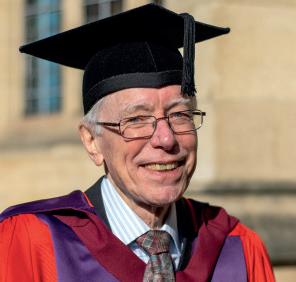
What do you imagine your life to be in your 70s? Do you imagine retirement, maybe relaxing on a cruise? Slippers and a hot drink in front of a fire? How about studying for a PhD? For many, this might seem like a crazy idea, but for one man, this is exactly what he did. Dr Nick Axten did not have a typical journey to PhD completion; the average PhD takes between 3-7 years, but for him, the journey was much longer - it took him 52 years!
Nick Axten started his doctorate programme in 1970, having received a scholarship to study for a PhD in mathematical sociology at the University of Pittsburgh in the USA. Five years later, not having finished, he left the university to return to the UK and did not take it up again until 2016, when he was aged 69. Axton enrolled at the University of Bristol, completing an MA Philosophy programme before signing up for a PhD at the same university. Aged 76, Dr Nick finally received his Doctor of Philosophy degree on February 14th. There to watch were his wife and 11-year-old granddaughter Freya.
Dr Nick described his journey through university “Sociology and psychology were suddenly boom subjects. I went to study them because I wanted to understand people”, but the long journey was “exceptionally difficult”, and he was quoted as saying, “Some problems are so great it takes the best part of a lifetime to get your
“There's consensus behind the protocol” - new NI-Brexit deal on the horizon
Eleanor Radford Senior News Writer
Seven years on from the Brexit referendum and over three years after the United Kingdom officially left the EU, a new protocol deal for Northern Ireland has finally been unveiled in the House of Commons for scrutiny.
According to Rishi Sunak, the deal “permanently removes any sense of a border in the Irish sea.” Labour leader Keir Starmer also backs the deal, claiming, “there's consensus behind the protocol… we (Labour) will vote for the protocol’, the deal looks set to affect the UK-NI border. Named ‘the Windsor Framework’, one of the major changes the deal will include is the idea of ‘green’ and ‘red’ lanes. Previously, any items entering Northern Ireland had to go through customs control to be checked.
new lanes would also allow businesses moving goods from Northern Ireland to the UK not to have to complete export declarations and would lift bans on some items such as seed potatoes, some British native tree seeds and chilled sausages.
A second important factor in the deal is how animals moving between the UK and Northern Ireland will be treated. Before the deal, animals needed to have a vet-issued health certificate and proof of up-todate rabies vaccination. However, movement from the UK to Northern Ireland will now only require animals to be microchipped and not move into the EU. There have also
been other changes for value-added tax (VAT) on certain items, such as alcohol, with UK VAT applying to alcohol that is for immediate consumption in Northern Ireland rather than EU VAT rules.
Stormont (MLAs) or two-plus parties sign a petition.
However, the European Court of Justice continues to be the final ruler on remaining rules, with the EU Chief Ursula von der Leyen saying it was only an ‘emergency mechanism’.
With this new deal unveiled, the Democratic Unionist Party (DUP) leader, Jeffery Donaldson, stated that “The deal showed progress, but there are still concerns”.
head around them. They need a long hard think”
Axten’s research could be an important contribution to psychology, as he has developed a new theory for understanding human behaviour, which will potentially have a huge impact on behavioural psychology.
When Dr Nick started his PhD, the UK had a different monetary system, so he would have paid for his university supplies using shillings and crowns rather than pounds and pence. Telephones were all wired to the wall, and the world would have to wait another 14 years for Kate Bush to run up her hill for the first time!
So why would anyone take on such an epic journey? Apart from the honour of gaining the title ‘Dr’, much recent research suggests there are particular benefits that might relate to older adults as active learning is beneficial for brain health as it helps build the kind of new neural connections that boost cognition, memory and problem-solving skills.
Reflecting on his graduation day, Dr Axton described his experience of being a mature student surrounded by much younger students “I have loved being a student again at Bristol University. All of the other philosophy graduate students were around 23, but they accepted me as one of their own. They are clever people and full of ideas, and I loved talking with them – especially in the pub in the afternoon.”
Now, any items headed from Great Britain (England, Scotland and Wales) to Northern Ireland will be able to go through a ‘green lane’, which will reduce checks and paperwork for these goods. Those headed to the Republic of Ireland (or the rest of the EU) would have to go through a ‘red lane’. These
Besides these changes to regulations, an additional agreement - the “Stormont Brake” - reduces the proportion of EU rules that apply to Northern Ireland to less than 3%. Alongside this, the Northern Irish assembly can stop some EU laws on goods if they disagree with them. This process would be triggered if thirty-plus representatives from the
The DUP is the main unionist party in Northern Ireland. Following this, on the 6th of March, he formed an eight-member panel featuring former DUP leaders and first ministers to review and consider the deal before deciding whether to back it. This panel should report back by the end of March, with Donaldson stating, “History teaches us that it is always better to get the right outcome for Northern Ireland rather than a rushed one”.
If the panel vote to adopt the deal at the end of March, alongside a vote in the House of Commons, the Windsor Framework will become the way forward for relations between the UK and NI border, going into law.
Norfolk buses cut by a third in less than 10 years
New data from the Department of Transport has revealed the number of public bus services in Norfolk has been reduced by a third since 2014/15. Conducted as part of a national survey, the figures show the county to be in the top 10 local authorities for service cuts - with the highest decline seen in Hertfordshire at 56.5%. Norfolk buses travelled just 12.9m miles in the county in 2022, compared to 20m in 2014. Separate data also reveals that over a similar period, the number of bus journeys taken by individuals fell by almost 40%. Passenger numbers across the UK (excluding London) remain around 20% below pre-pandemic levels, according to the latest figures.
Despite this decline, buses still represent just under half of all public transport journeys taken in England.
Public transport campaigners have warned the sector, in its current form, is at risk of collapse and threatens the socio-economic mobility of those from lower-
income households the greatest, as they are more likely to use the bus and not own a vehicle.
Alongside this, rural communities have seen their public transport disproportionately severed Conservative County Councillor Graham Plant - cabinet member for highways, infrastructure and transport - commented, “Covid-19 had a massive impact on bus use, with passenger numbers falling by 50.3pc on average but in many areas even more. Being a rural county, our bus services are vital for residents in accessing local services, which is why we have been working hard over the last year to bring passenger numbers back up and enhance services across the county”. He also emphasised that the Conservative-controlled council's ‘Bus Service Improvement’ plan would get more people on buses.
Leaders at First Eastern Counties - the primary operator of Norwich services - said pandemic lockdowns were responsible for the "vast majority" of service cuts and that this impact continued to be felt, with more households working from home and shopping online. A spokesman for the
group said, “The amount of buses running has declined over the period, but generally these have been a series of smaller reductions over the years rather than wholesale cuts in routes at one time. In terms of the future, we are still building back from the changing travel habits of our customers, such as working from home and online shopping and are working to deliver increases in services where appropriate.”
The Department of Transports' national £2 fare cap has yet to reveal its impact on passenger numbers - however, in Norwich, this cap only applies to oneway single fares in the ‘Norwich Inner’ zone, so local campaigners expect little to no positive effect.
Throughout England, around 13% of bus services are subsidised by local councils, however, transport analysts have said this has been falling steadily as local authority budgets shrink.
The DfT says it is “committed to improving services across the country” and has asked all local authorities to work with private service providers to develop “bus service improvement plans”awarding a total £1bn of funding nationally.
14th March 2023
4
Photo: Wikimedia Commons
Photo: Concrete/Samuel Baxter
Plum Bristow
News Writer
Credit: University of Bristol
Jamie Bryson News Editor
Extra strike day added as UCU resumes national dispute
Amelia Sarmouk News Writer
Universities across the UK continue to be affected by strike action as a result of ongoing disputes over pay and pensions between unions and regulatory bodies, with Industrial action having taken place since November 2022.
Over the past month, there has been reported progress in the talks between the UCU, Acas (an independent body designed to resolve large industrial disputes) and employers.

the UCU’s General Secretary Jo Grady, stating, “this will enable us to hold intensive negotiations with the aim of reaching a final agreement." Updates came from UCU, UNISON, Unite, EIS and GMB on February 23rd with a joint statement reading, “Following constructive talks between UCEA (Universities and Colleges Employers Association) and the joint HE Trade Unions on Thursday, 23 February, facilitated by Acas, some progress has been made towards establishing agreed terms of reference for negotiations on the review of the national HE pay spine”.
The statement concluded, “Talks, through Acas, will continue next week on the terms of reference for negotiations on the pay spine and on workload, contract types and pay gaps”.
end on non-pay negotiations. However, Michael goes on to say that “If they cannot do so, UCU members across the sector stand ready to defend their working conditions and jobs”.
the Government to prevent any future declines against the cost of living”, and finally, “to reform the DDRB (Doctor’s and Dentists’ Review Body) process”.
This subsequently led to ‘paused strike action’, resulting in the original plan for seven days of disruption between Tuesday, 21st February and Friday, 3rd March, being called off - with
These are positive steps forward; however, no solution for a fixed agreement has yet been implemented. For instance, the unions have said also they are “disappointed that UCEA has moved to instruct its members to impose the first element of the 2023/24 pay proposal”, which is a critical point of tension due to the lack of agreement yet to be made on pay.
Despite the February strike suspension, Students at UEA will
Credit: WikimediaCommons
continue to be affected by the dispute.
The key dates for UEA students to note before the Easter break include the newly added Wednesday 15th of March, as well as previously proposed Thursday, 16th, Friday, 17th, Monday, 20th, Tuesday, 21st and Wednesday, 22nd of March 2023. This will mean cancelled lectures and seminars may still occur.
The Chair of the UEA branch of the UCU, Michael Kyriacou, shares optimism around strike suspensions in February due to discuss progress from their
Michael concluded that “UCEA’s decision to implement an element of the pay award represents, in my opinion, both an escalation and potentiate bad faith”. This, therefore, means for Michael that “With action scheduled to resume from the 15th to the 22nd and a current re-ballot to extend the dispute, I would hope that all employers are getting serious about finding a deal that is sufficient to get my members back into the seminars, labs and lectures that make up our student’s education”.
Overall, UCU is suggesting that the non-pay side of talks (working conditions and pensions) is progressing, but the pay awards are creating an unfair environment for staff and, therefore, students’ education at UEA. Aside from higher education strikes, other new national industrial actions continue to be seen, with Junior doctors confirming they will join nurses and other health staff to take action on pay restoration. Specifically, the BMA (British Medical Association) union has said that the choice to strike is to “achieve full pay restoration; to agree on a mechanism with
Locally, Breckland and North Norfolk bin collections and street cleaning are set for a week of disruption beginning March 13th, with 99% of members backing a ballot, according to UNISON. Cameron Matthews, the UNISON Eastern regional organiser, said, “it’s a real shame that Serco can’t dip into its incredibly deep pockets to pay its workers[…]”.
The issue of depleting pay amidst the continued cost of living crisis continues to be a national and local issue across many sectors, with many seeking answers from the government and unions to progress talks and find solutions to growing pay gaps working reforms.
Analysis: What does Sturgeon’s r esignation mean for Scotland?
Henry Tuppen
News Writer
2015 ‘Westminster Landslide’. However, on February 15th, Sturgeon made the surprise decision to step down from this role. Sturgeon cited the continued weight of the job as the main reason for resignation, stating, “giving absolutely everything of yourself to this job is the only way to do it… but in truth, that can only be done by anyone for so long”. Despite the First Minister’s clear presentation of the reasoning behind her retirement, some commentators, including Freddie Hayward of the New Statesman, believe there is more to it.
This continued strength could be seen as continued support for the SNP; however, post-resignation, can this support be maintained?
Nicola Sturgeon took over from Alex Salmond as leader of the SNP and First Minister of Scotland in 2014 after the party’s loss in the independence referendum.
As First Minister, Sturgeon was head of the Scottish Government and ran the country in line with the Scotland Act of 1998. Sturgeon had almost a decade of unrivaled electoral success in Scotland, including the historic

Both Hayward and Severin Carrell of the Guardian see that, although Sturgeon’s approval ratings remain high, her inability to achieve independence after 8 years as leader and a further 7 as Deputy First Minister has drained a lot of momentum from the movement. Nevertheless, with Sturgeon’s domination of Scottish politics, it is hard to imagine anyone being able to succeed where she couldn’t. Through a period of turmoil and change in the house of commons, Sturgeon and the SNP’s leadership in Holyrood has remained strong.
The Labour party clearly see her choice to step down as a catalyst for them to potentially regain a lot of the support they lost to the SNP in Scotland. Former leader of Scottish Labour Jim Murphy stated, “there is a real opportunity for the Scottish Labour Party here, but they have to adept enough to take it”. Keir Starmer has used her resignation as a chance to try and recover some of Scottish Labours' power, describing Sturgeon’s success as being “grounded… in persuading people who used to vote Labour to support her cause”. He clearly feels that none of her potential successors has the same pulling power she does and that the period of SNP dominance may be coming to an end.
The early stages of the hunt for Sturgeon’s successor speaks to her influence over Scottish politics and how it may be beginning to fade. Candidates seem to be using their connection to Sturgeon to try and gain support. Health Secretary Hamza Yusuf stated,
“I would consider her not just a friend but a mentor… I have been trusted by Nicola Sturgeon” in his first interview after announcing his candidature. However, this connection to Sturgeon doesn’t seem to be having the desired effect on the polls.
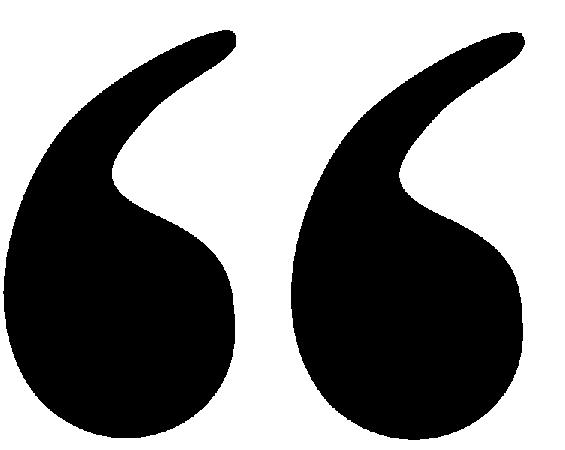


recognition for both candidates.
Ash Regan resigned in October 2022 in protest of the government’s plan to reject gender recognition certificates, and Kate Forbes has had to spend the beginning of her leadership campaign defending her religious views on gay marriage, gender recognition and abortion that directly contradict the SNP party line.
Although Yusuf seems to be Sturgeon’s preferred successor, there have been calls from Scottish Shadow Health secretary Dr Sandesh Gulhane for him to resign due to several recent crises in the NHS.
The two other main candidates are less fond of Sturgeon and would represent a more significant shift in SNP policy, with the most prominent of these shifts centring around the issue of gender
Despite this, Forbes has emerged as the clear favourite sitting 8 points ahead of Yusuf and 16 ahead of Regan in the polls. Yusuf has the backing of half of Sturgeon’s ministers, a third of SNP MSPs, and nearly all of the 10 SNP MPs. However, the SNP is the UK’s largest mass membership party with over 100,000 members, and the majority of that membership seems to be swaying towards Forbes.
The ideological divide within the leadership election shows that the uniting factor that was independence is no longer able to hold this disparate coalition of political philosophies together. The road ahead for the SNP and Scottish politics remains uncertain.
14th March 2023 concrete-online.co.uk/news/ | @ConcreteUEA 5
Wikimedia C
Photo:
"I would hope all employers are getting serious about finding a deal"
"The early hunt for Strugeon's successor speaks to her influence"
Credit: WikimediaCommons
Home of tHe wonderful Norwich responds to the death of Brianna Ghey
Silver Constantinides
Home of the Wonderful Writer
It is 1pm on Sunday 19th February.
It is one of the first sunny days of the year, yet this slight warmth lends an almost oppressive atmosphere against the grief. Over 200 transgender and non-binary people and allies gather round Norwich City Hall. Some people cry, comforted by friends clad in trans pride flags. Others prepare flowers and lanterns. But as the crowd is hushed by organiser Charlie, one cannot ignore the

powerful sense of community, even in such tragic circumstances: the death of trans teenager Brianna Ghey, who was found stabbed to death in a park.
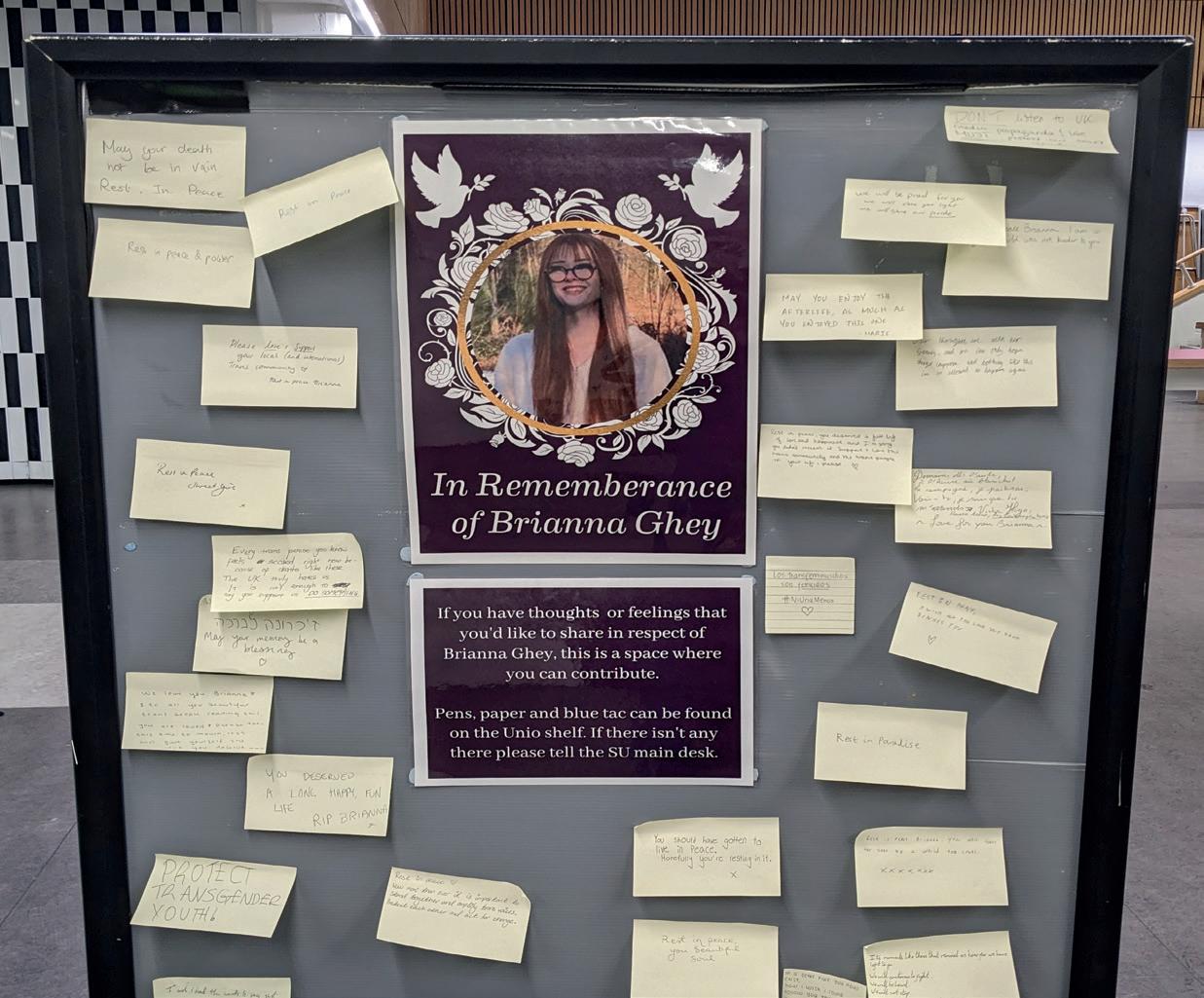
The murder suspects were quickly taken into custody, and while authorities are quick to say that they are exploring all possibilities for her death, transgender, nonbinary and gender non-conforming people across the UK are united in their fear and anger. It feels like it could be any one of us next. As one speaker at the vigil offers: “Brianna’s death was a tragedy, but not an isolated incident. We hope it will be the last, but history has told us that is not the case..”
Vigils were quick to be organised across the country following Brianna’s murder. Norwich Trans Pride organised our city’s vigil, giving space not to only to mourn together, but to make a statement of solidarity and love to young trans people in Norfolk. Starting with speeches from trans locals,
the emotion and power with which they spoke moved many to tears, including the speakers themselves. “We shouldn’t have to keep doing this.” are the words that stuck out to me the most, coming from a speaker trying to compose herself enough to finish her speech. They punctuated the speeches with a heavy two minutes of silence, broken by a solemn but powerful chorus of ‘Singing for our Lives’. Despite the sadness, the message could not have been clearer to trans young people in Norwich: You are loved. You are valid. You are never alone.
A smaller, student-lead vigil in UEA’s Hive at 11am preceded the vigil at City Hall. Attendees took a moment of silence after a speech from LGBT+ Officer Erin Whitby to write powerful messages, wishes and calls to action on a display board made by the SU. This also gave the chance for students to walk together to the Norwich vigil, offering support to anyone who may have felt unsafe walking alone. The display is still in
Human rights in the Kashmir: A seminar by UEA’s Amnesty International
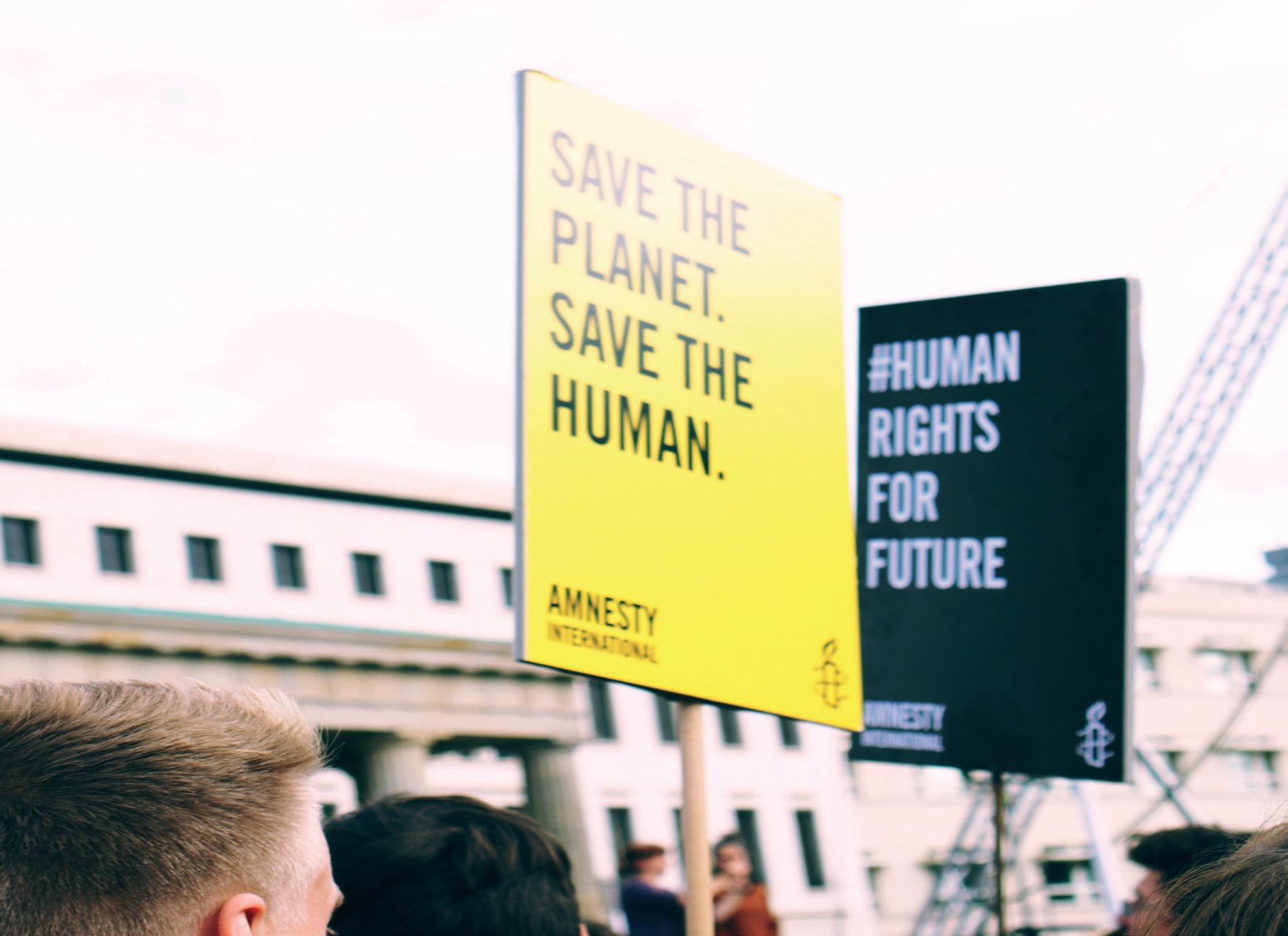
Stacey Semikhodskaya
Home of the Wonderful Writer
The recently revived society of UEA –Amnesty International- is organising its first event on 17thMarch 2023 at UEA. Amnesty International is an international organisation that focuses on issues pertaining to human rights and activism. This is done through hosting events and through letters written by its members to concerned competent authorities. Therefore, the first event of UEA Amnesty International Society is about human rights violations in Kashmir.
This would be an academic style seminar in which external speakers would be talking about the intricate issue. Kashmir has remained a disputed territory between Pakistan and India for more than 7 decades. However, the event will only be covering the human rights issues whereas the political future of Kashmir will not be discussed. The panel of speakers would include experts of human rights including the Indian Country Coordinator for Amnesty International
(UK), Cherry Bird. There will be other keynote speakers such as the Former Defence Secretary of Pakistan, Lt General (Retired) Naeem Khalid Lodhi.
As Amnesty International (UK) is supporting this event, they will also have their stall at the venue. In addition to the stall, there will be a Q and A session to answer the questions of the audience. This will be a great learning opportunity for students to know more about the international organisation and human rights. The event will include free food or refreshments for the audience. The venue details are yet to be confirmed by the SU. But for more details, head over to the new Instagram page of society at ueaamnesty. The students can also reach out to the President of the society, Hamza, for more information at mhamza252@hotmail.com. Lastly, this event is being conducted in collaboration with London School of Economics and Political Science’s (LSE) Pakistan Development society. Looking forward to seeing you all at the event on 17th March!
14th March 2023 6
Image: Unsplash
The Hive and available for students to add a note expressing their grief, should they want to express any
upset towards this palpable loss in the trans community.
Image: Unsplash
Talking to Rachel Collier Wilson, local queer artist and Queer Fest organiser
Jess Blissitt Home of the Wonderful Writer
Just as when I met them a week before, Rachel was very friendly and eager to talk about their project Queer Fest. Queer Fest is a festival celebrating LGBTQ+ artists that ran from the 4th-26th February 2023.
In your exhibition ‘Out in the Picture’ in last year’s LGBTQ+ history month, you describe bringing queer artists’ into the frame where they can often be isolated from society’ -How do you think that relates to what you’re doing now with Queer Fest?

“Well yes, [Similarly we’re]-, creating inclusive spaces for queer people to showcase their work. Often, creative people might feel intimidated or [lack] the courage to showcase their art, so Queer Fest provides us with a space to do just that. [From my experience,] there definitely is a responsive queer community[in Norwich]. So, we’re creating spaces for a queer community that’s already out there. When you [gather] people who are queer and queer allies, that might not showcase their work elsewhere, it creates a leveling platform for them to express
themselves.”
Do you think ‘Out in the Picture’ directly relates to Queer Fest, or has this idea expanded into a much bigger concept?
“This year was just about trying to see what we could do at this point. From the large and positive response, we got from the markets [last year], we were just trying to see what was achievable with little resources and no funding but a thriving passion and interest from the community. It definitely does hold more recognition being held in such a historical month for the queer community. It reminds us of what we’ve been through and how far we have still yet to go. We definitely do have plans for Queer Fest ‘24, hopefully this will include another exhibition with potentially bring in more national and even international artists, and the Maker’s market was such a fantastic buzz, but we would like to hold a couple of [accessible] venues more in the city centre. I think this would be widely appreciated.”
I noticed that a lot of your work and exhibits relate towards your queer identity. So, I suppose I wondered
how this Queer fest exhibition was different from your previous exhibitions?
“Well, I really try and respond to the space of the exhibition, but still showcase the energy of my drawn line. So[my exhibit],showed the fragility of identity, as a queer person you can often feel that an odd comment can create that sense of fragility, like a house of cards. We’ve been quite fortunate to be allowed this space for a month, and working within The Shoe Factory, has allowed us to create something for everybody.[Many]of the contributions are simply the people who have been eager to participate. Most of the ideas were brought to us, the comedy nights, the short films, these were all set up by other people within the community that wanted to contribute. The flea market is one of the best events we got to put into reality, as it encompasses a transinclusive market, which isn’t very accessible in lots of every-day life.”
In your exhibition ‘There’s something Queer About this Art’ (July 20thAugust 1st2021), I read that you said ‘the subject doesn’t necessarily
represent queerness, it just happens to be that the artists are LGBTQ+’- I wondered if this distinction was important to you?
“I believe that this is such a question for the individual. Personally, I feel like I do a good mix, but some of my work can be more commercial, as there is an added vulnerability to creating artwork based on your own sexuality and experiences. Often when you don’t feel represented or when the world can make you feel misrepresented or invisible, it’s hard to to create intentionally queer art. So, it’s more about being inclusive than thematically consistent. And, to me at least, Pride isn’t about one particular day, and doing what we can to create a queer space is incredibly important. In fact, it’s so important to create this space for queer artists, it doesn’t necessarily matter whether the work might be [categorized] as ‘queer art’ the theme of queerness, of openness lies more in the liberty of allowing this queer space to evolve. See, I’m a big believe in ‘you can’t be it if you can’t see it’ and seeing yourself represented is incredibly important for all of the queer community.”
The votes have been counted... Student Union Officers elected
Ronaldo Martins
Home of the Wonderful Editor
Every year, the beginning of March rings in a very important event for the UEA Student Union: the SU officer team elections. Officers consist of UEA students that are elected to represent all facets and demographics of the student body on a variety of matters concerning life at the University, including student welfare and ethical issues. While the team of full-time officers are tasked with larger, widerimpacting issues facing the SU, there are also a number of parttime officers that seek to offer visibility for minority groups at UEA, by race, gender and disability (among others).
The elections for the 2024 academic year have been no exception to the influence it holds. Congratulations are in order for everyone who ran for election this year, however it should be met with considerable admiration that those who were successfully voted in will certainly have their work cut out for them amidst the tumult that the
University has faced during this academic year.

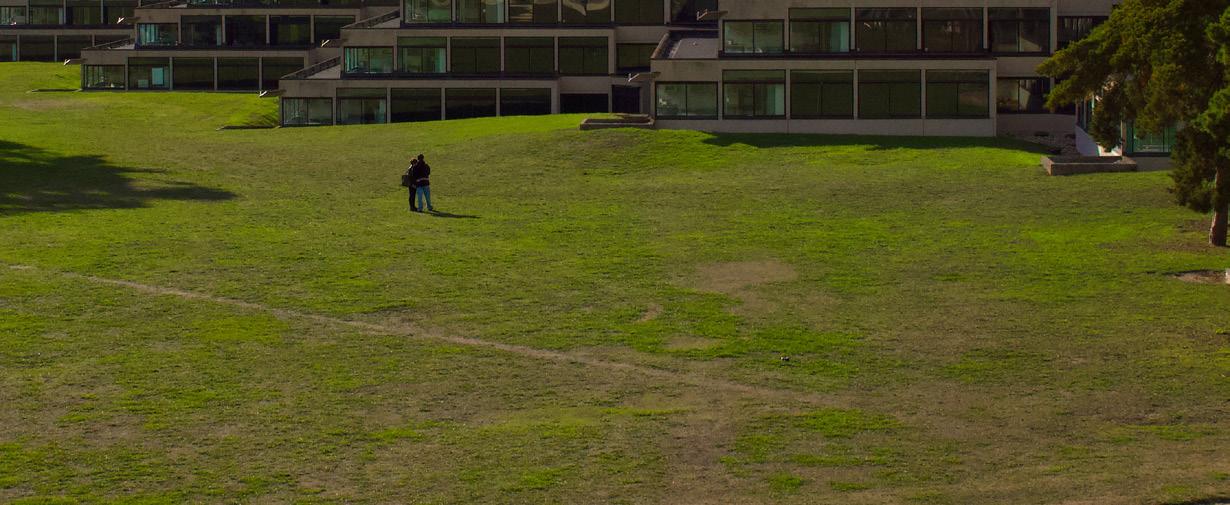
While there is a considerable pressure and workload that will come with these roles, there is also the scope to improve our life at university, as well as hold UEA accountable for any actions that impact our quality of education or our lives here. One particular new face that has joined and is eager to deliver is Nathan Wyatt for Welfare, Community and Diversity. Between a promising manifesto and an existing track record of philanthropy and grassroots change at UEA, Nathan’s commitment to exacting lasting social change for the benefit of all students on campus is a positive sign for what’s in store in 2024.
While there will be a lot to do in the coming academic year, Nathan seems confident in his ambitions. When I asked him what his goals were for the 2024 academic year, he responded:
“I’d like to think that my goals are reasonable and actionablegetting SOCAS (students of colour
ambassadors) in all UEA schools is a big priority of mine and probably the biggest project logistically but I think we have the willpower to get it done!
I want to review the unis bursary system - currently they are decided on a postcode lottery - if you’re from a ‘rich postcode’ but are struggling there is currently no additional support for you! This system is outdated and excludes lots of students that need support.”
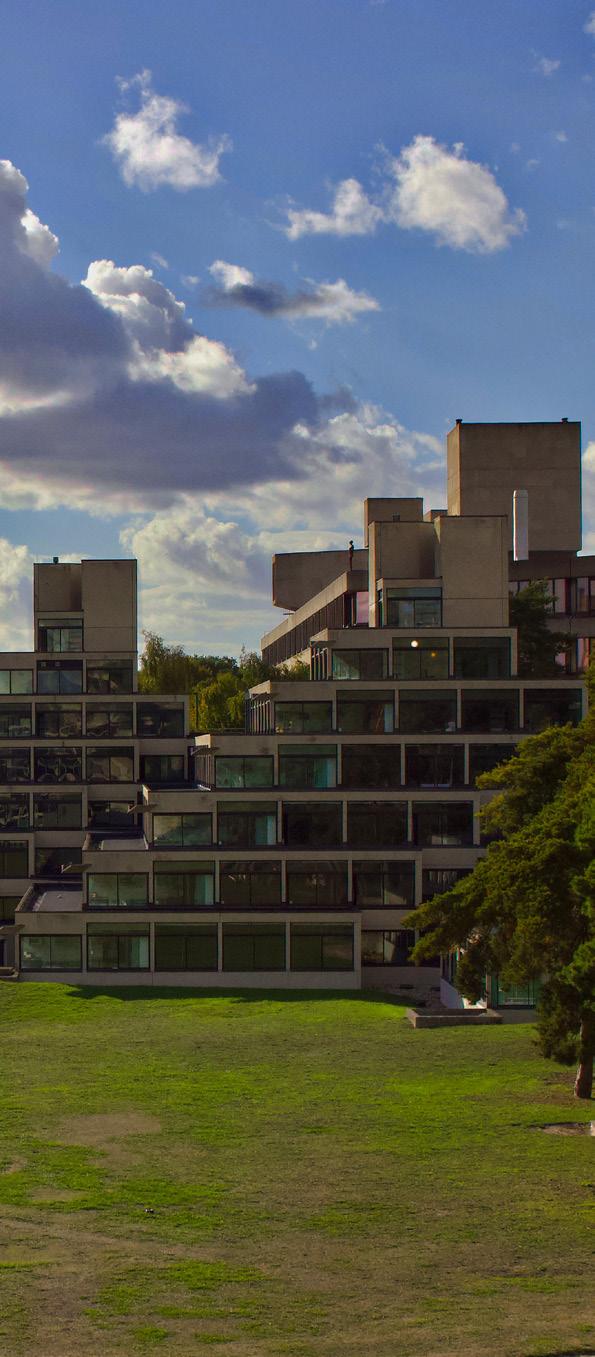
Of course, a victory on this scale must have some personal impact on someone, especially after they’ve poured a lot of time and effort into it. I asked Nathan what his election to his role meant to him:
“Honestly winning the election meant more to me than I’d like to admit- the past year has been a lot of commitment to voluntary work when I wasn’t in a good financial position myself. But I knew that if I wasn’t going to fight for the things that I wanted to see (warm banks, strike support, financial support) then chances where it wouldn’t get done! Being elected by a sizeable
majority let me relax and know that these commitments had paid off!
I’ve now got a mandate to push the university to listen to students and although my activism in the past year has gotten me branded as a troublemaker in the executive teams’ eyes, what I’m fighting for shouldn’t be controversial! I’m looking forward to cementing my status as a troublemaker if it means students concerns are addressed.”
7 14th March 2023
Discover your 2023/24 Officers on page 12-13!
Image: Prakrita Rahman
Image: Unsplash
Home of tHe wonderful
The Last Voyage of the Gloucester: UEA historical research gets public outing
Matthew Stothard Deputy Editor
Last June, UEA announced the discovery of the shipwreck of The Gloucester, a 17th century warship which sank in 1682, off the coast near Great Yarmouth. Following the opening of an exhibition focussed on the discovery at Norwich Castle, I spoke to Professor Claire Jowitt, the UEA historian acting as Principal Investigator on the project and one of the curators of the exhibition, and the diving brothers who discovered the wreck, Lincoln and Julian Barnwell.
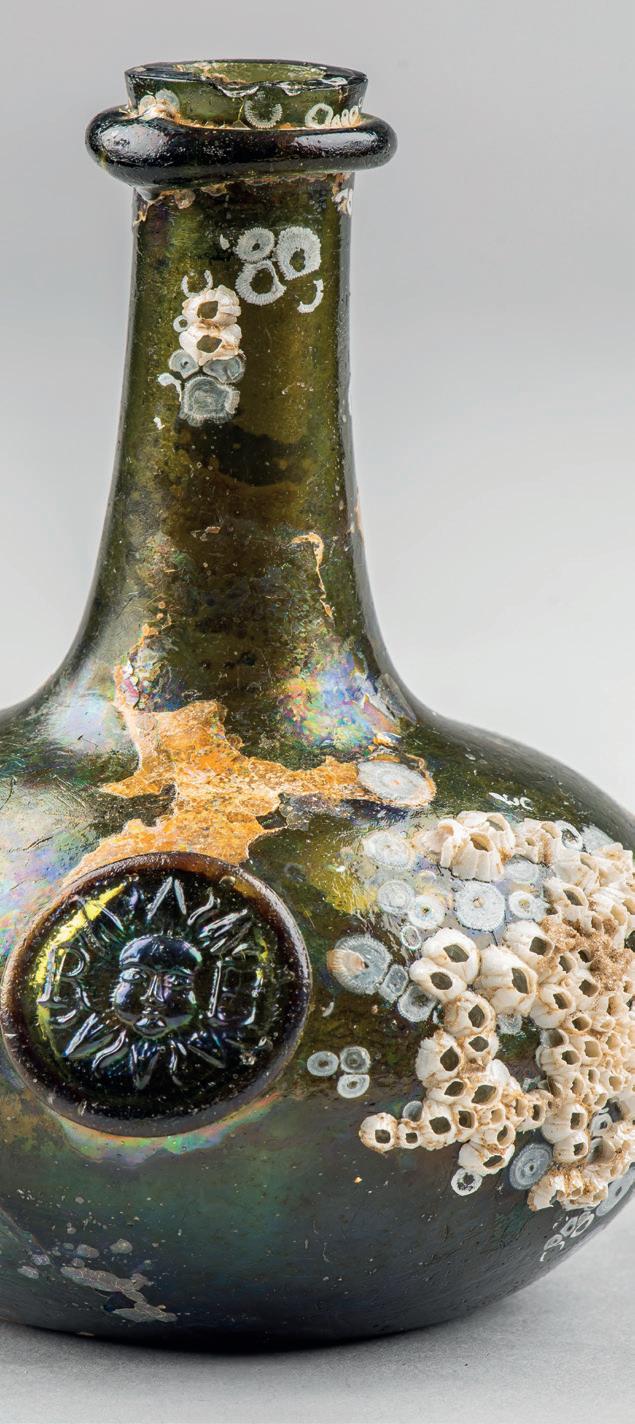

The Gloucester is a particularly significant discovery because of its royal passenger, James, Duke of York (later James II). Claire told me how a period of succession crisis around whether James, a Catholic, should be able to take the English throne was somewhat subsiding by 1682, and James had returned to court from Scotland where he had been based. This voyage then, in May 1682, was heading back to Scotland, to bring James’ family to join him in England, when they met, according to Claire, “quite a difficult passage around the North Norfolk coast.” Following disagreements over the best course to take, the boat hit a sandbank and sank.
Despite the royal connection, it’s the other passengers, numbering a maximum of around 400, who are forming a substantial amount of the research Claire and Dr Benjamin Redding, Senior Research Associate in the School of History, are conducting. There were many nobles accompanying James, but one of the aims of the project is to look outside of the traditional ‘Great Men’ of history, stories Claire says “our historical record is full of,” and instead uncover the lives of those lower down the social scale. One example Claire draws on is of James Littledale, servant of the Earl of Roxborough, who drowned alongside his master who couldn’t swim whilst trying to save him. Claire and Ben are looking at stories from across the social spectrum, but as Claire emphasised, “we’re always really pleased when we’re not just dealing with a noble.”
Fast forward 325 years, and in 2007 brothers Lincoln and Julian Barnwell were looking for a new diving project. As Lincoln told me, “We’ve been diving Second World War wrecks for many years and we soon learnt that wooden wrecks
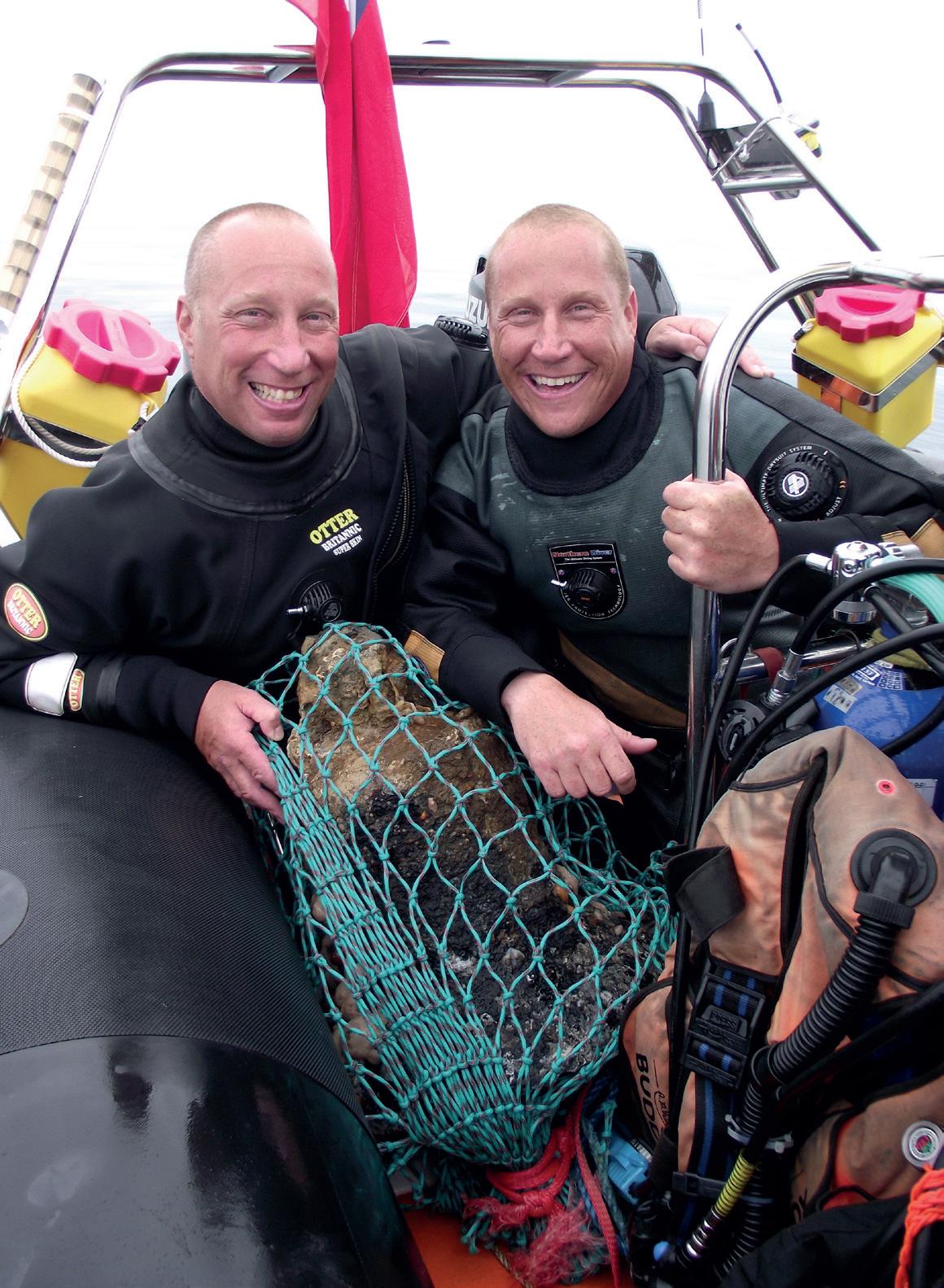
were really interesting… so I flipped through the [British Isles Index of Shipwrecks by Richard and Bridget Larn, on display in the exhibition] to the oldest date I could get to, suddenly saw 1682, the Gloucester, the Duke was on board and then there’s that magic word: ‘cannon’! It might be a boyhood thing, but I used to love cannons and that’s what really got me!”
Lincoln went on to describe the first dive on the project, recalling that, “The first dive was any diver’s dream really, I’ll never forget that. We got to the seabed and I just knelt there and I took… it must have been like 10 minutes just looking at the view, I didn’t want to move anywhere, just wanted to really enjoy the moment, to remember it, absorb it, and just surrounded by these 9 foot cannons.”
Since that moment the project has been ongoing, with the discovery of the ship’s bell in 2012 (“the diver’s mission,” according to Lincoln) confirming the wreck as being The Gloucester. UEA entered the project in 2019 at the request of Steve Miller, director of Norfolk Museums, and the current exhibition has been co-curated by Claire, Ben and Ruth Battersby Tooke and Dr Francesca Vanke of Norfolk Museums.
The exhibition features a range of items both from the wreck and loaned from other institutions like the National Maritime Museum, and is split into two parts, one focussing on the 17th century history of the ship, and the other on its new life in the 21st century. One of the key finds, of which there are some at the exhibition, were 149 wine bottles. Claire suggested these show James was “in a party mood,” and she was particularly excited by the 29 still with their full contents, including “ullage, which is the little bit of air between the liquid and the cork. So in those bottles there is 17th century preindustrial air which has been kind of captured down there.”
Also on display are the contents of two chests which were found, which Julian described as “quite cool, because you’ve got so many objects [from a] range of social classes.” These include a pair of glasses with their original case, items of clothing and ink from an inkwell! Claire also highlighted “a little leather purse that’s got crown symbols on it… the only item rescued to date that screams royalty with the St Edward’s Crown on it,” the same crown which will be used in Charles III’s coronation in May, as well as a urine specimen jar which may have
been used by James. UEA students may also be interested to see the animation telling the story of the shipwreck in the exhibition, which was written by Steve Waters, UEA professor of script-writing, and voiced by UEA drama students.
Claire spoke about the importance of the discovery to UEA, as it is “a story that’s important for Norfolk and we are an anchor institution within Norfolk… Ideally what UEA would love is for there to be a permanent home for these artefacts… a Norfolk Mary Rose, and UEA as an anchor institution would do all it could to support those kinds of ambitions.” The Barnwell brothers also talked about the value of the exhibition for Norfolk’s tourism industry with Julian discussing the potential for a permanent museum with “immersion technology… a digital museum as well as objects.” He hopes people “realise this is just the first chapter of the modern 21st century story of The Gloucester, and help us turn it into what she deserves to be.”
For now, Claire and Ben are continuing to work on their book, “a cradle to grave history of the Gloucester,” whilst the exhibition at Norwich Castle, The Last Voyage of the Gloucester: Norfolk’s Royal Shipwreck, 1682, runs until September.
14th March 2023 8
Image: UEA
Image: Norfolk Historic Shipwrecks
Image: Norfolk Museums Service, Norfolk Historic Shipwrecks
What’s on?
Week commencing 13th March 2023
Empowering Art - 12th March - 30th July - The Sainsbury Centre is host to ground-breaking exhibition, bringing together contemporary and historical and including works from many renowned artists. This is operating on a ‘pay what you can basis’.
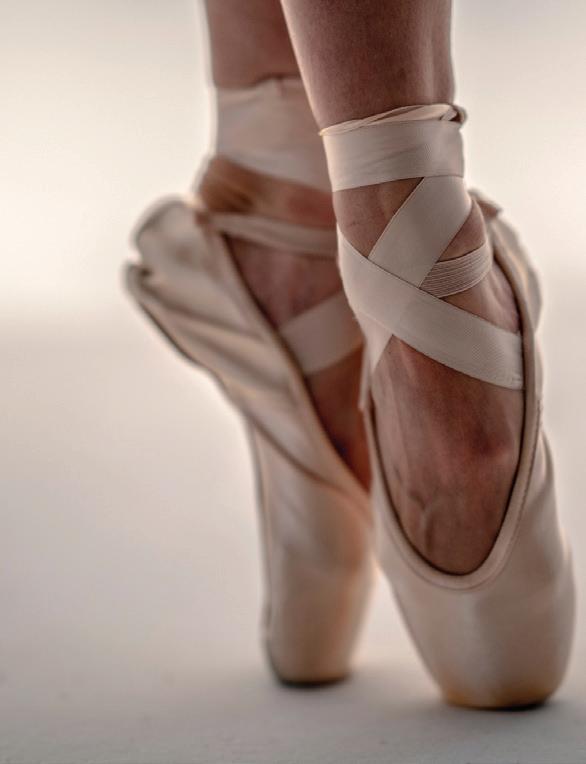

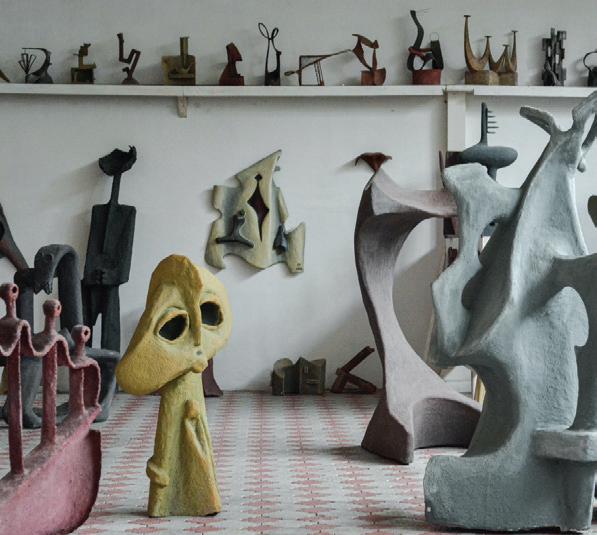
Sound Bath - 14th March, 6pm - Head over to Bookable Room 1 to quieten down the noise in your mind, and let the stress ease away. It’s a Women’s History Month event dedicated to rest and relaxation. Tickets are free but book via the SU website.
Kin - 14th March - 16th March - Gecko come to Norwich Theatre Royal to present the imagined voyage of one child’s journey to escape persecution in a poetically intoxicating performance. Tickets from £10 at the Norwich Theatre website.
Damn Good does Night at the Movies - 14th March, 10:30pmwhether you dress up as James Bond or turn green to channel Shrek, you can bop along to the greatest tunes from a whole selection of movies. £4.50 a ticket from the SU website.
Darkfield: Eulogy - 15th March - 26th March - An intense journey performed in complete darkness over 35 minutes. Your experience will rely on sound and senses. Tickets from £12.50 at the Norwich Theatre website.
PG Live - 15th March, 4pm - Another Women’s History Month event which encourages a development of conference skills in a relaxed environment. Event takes place in Bookable Rooms 7 and 8. Tickets are free but to be booked via the SU website.

Amnesty Society- “Human Rights in Kashmir” event is 17th March, in LT1 at 5-7
Julian Stair: Art, Death and the Afterlife - 18th March - 17th September - Julian Stair presents new work which seeks to offer solace for those who have lost loved ones. Operating on a ‘pay what you can’ basis at the Sainsbury Centre.
Week commencing 20th March 2023
Damn Good does Easter Eggs - 21st March, 10:30pm - don your pastels, brush off that bunny costume you secretly own, and celebrate Easter at the LCR. £4.50 a ticket from the SU website.
Women of Colour Creative Brunch - 22nd March, 1pm - An event in Bookable Room 1, where women of colour can come together and be creative, alongside food and drinks, in a relaxed and welcoming environment. Tickets are free, but must be booked via the SU website.
Gender Rebels - 22nd March, 6:15pm - Gender Rebels are singing songs about women’s history in the LCR. A combination of well-known updated songs, as well as unknown songs from the archives. Tickets are free, but must be booked via the SU website.
Disabled Mothers Speak Out - 23rd March, 6pm - This Women’s History Month, disabled mothers are coming to UEA to speak out about the discrimination and hostility faced by marginalised mothers. The event is available to join online and in person in Bookable Room 6. Tickets are free, but must be booked via the SU website.
Source: All images from Unsplash
Hanya Yanagihara at UEA Live - 23rd March, 7pm, Lecture Theatre 1 - join the critically acclaimed author of A Little Life as she discusses her latest novel To Paradise. Her novel is about love, loss, and the promise of utopia. Tickets from £6 available from the UEA Live website.
The Undercover Hippy - 24th March, 6pm - head to The Waterfront for this incredible event. Determined to make people laugh, dance, and think all at once, Billy and his band never fail to make the crowd energised. Tickets at £16.50, available from the SU website.

Week commencing 27th March 2023
Alumni Stories: Women in Tech - 29th March, 3pm - UEASU and CareerCentral are celebrating the influence of women mentors for early career starters. There will be an inspiring Q&A with UEA alumni and businesswoman, Rebecca Houghton. The event is online, and your place must be booked via CareerCentral.
“Text me when you get home” + Film Screening - 29th March, 4pm - Libs Olley and Rachel Ridealgh present a talk on violence, patriarchy, and resistance with a screenign of A Girl Walks Home Alone At Night. Held in Congregation Hall 0.17. Book your free ticket via the SU website.
Clutter City Spring Market - 1st April, 11am - Clutter City returns to Norwich Arts Centre with over 25 stalls featuring the best local artists. Pick up anything from jewellery to homeware, and support local businesses along the way. Simply turn up!
Liv Presents A Feast of Fools - 1st April, 8pm - Drag superstar Liv returns to Norwich Arts Centre to celebrate the misfits and tricksters of the world. This event promises to be an outlandish celebration of queer joy. Tickets from £9.50 at Norwich Arts Centre website.
Week commencing 3rd April 2023
Wind in the Willows - 4th April, 2:30pm - a new adaptation of Kenneth Grahame’s classic, this performance features incredible puppetry and an original score. Tickets from £10 at Norwich Theatre.
Matthew Bourne’s Sleeping Beauty - 4th April - 8th April - enter a wonderful world of magic beyond belief. Join Princess Aurora as she seeks for her true love, to the unforgettable music of Tchaikovsky. Tickets from £10 through the Norwich Theatre website.
An Evening with Eleanor Catton - 5th April, 6:30pm - join Eleanor Catton, Booker-prize winner, at Dragon Hall to discuss her latest book, a gripping psychological thriller. There will be a Q&A, as well as a book signing. Tickets at £5, available from the National Centre for Writing website.
GRL DEM presents: The Awakening - 8th April, 8pm - An extravaganza of music, themed decor, fancy dress and interactive art. Celebrate the return of light with a whole medley of music, from disco to drum and bass, soul to electro. Fancy dress is very much encouraged with a prize out for grabs. Tickets from £13 at Norwich Arts Centre website.
9 14th March 2023
Global Comment: Is the Energy Charter Treaty finally coming to an End?
Emma Darlington
Global Editor
Effective climate change policies should theoretically take fossil fuel companies to their graves.
The not well-known “Energy Charter Treaty” (ECT) is a major factor preventing countries from swiftly phasing out fossil fuels. The ECT was adopted in law in 1998, signed by 53 European and Asian countries. It is an “international agreement that established a multilateral framework for cross-border cooperation in the energy industry”, heavily focusing on the fossil fuel industry. Its initial purpose was to reinforce the relationship on energy matters between the USSR, the countries of Central and Eastern Europe, and the West (United Nations).
One may wonder how this could impact governmental responses to climate change policy. To understand its influence, one must look at its secret weapon, the “InvestorState Dispute Settlement” (ISDS). Intergovernmental organisations have the upper hand, with their assets protected from being seized. Companies can challenge governments over policies directly affecting them, which ensures the status quo is protected.
The power TNCs have in influencing governments is vastly underestimated. This is the delusion to how much power they actually hold.
According to the Guardian, oil and gas firms have been “awarded more than $100 billion by ECT tribunals. Uniper, Rockhoppers, RWE, and Ascent are the names of a mere few corporations which are in the process of suing governments for millions and billions for damaging their profits. A case that drew public outrage occurred in Italy. The Italian government banned oil drilling within 12 miles of its coastline after the mobilisation of citizens in 2015. Effectively this threatened the “Ombrina Mare Project, owned by the oil company Mediterranean Oil and Gas. In 2014, UK oil company Rockhopper bought the Mediterranean Oil and Gas Company. When Rockhopper went to court to gain a license for further exploration of oil, it lost, later taking the case to
the ECT tribunal. Rockhopper reportedly asked for US$250 million in compensation, while it only invested US$29 million. Rockhopper won the case and was awarded $190 million with interest.
Paul De Clack from Friends of the Earth said: “It is scandalous that Italian citizens are now expected to pay Rockhopper US$250 million for destroying the Italian environment and the climate. It is all the more pervert that they get 8 times more than what they invested”. With the threat of climate change growing, the risk of more fossil fuel companies using the ECT will only increase.
Italy withdrew from the treaty in 2016, however, this does signify closure. Even when a country resigns from the agreement, they are bound by the rules for the next 20 years. One can only thank the “Sunset clause” for this. What does this mean for climate change action? The IPCCC recently warned that the “Investor-State Dispute Settlement” (ISDS) under the ECT could cause chilling effects, preventing governments from reaching their targets and delaying policies on reducing emissions.
The modernisation failure and EU countries leaving the treaty: With countries wrapped around the fingers of the ECT, it feels like there is no way out. However, there are two feasible options; attempting to modernise the treaty or leaving the agreement and not turn back. During the last few years, ECT has been in the process of modernisation to make it more compatible with the Paris agreement in tackling climate change. On June 17th, 2022, parties agreed to reform certain elements of the ECT. These include aligning the treaty with the Paris Climate Agreement, shortening the “Sunset” provision to 10 years, banning the use of ISDS to sue contracting parties of the same regional Economic Integration Organisation (an EU member state cannot threaten another EU member state) and many others. This is far from the final step, in April 2023, parties are expected to vote one last time to formally adopt the modernisation. All in all, modernisation just looks like an attempt to smooth the edges of a deeply undemocratic flawed treaty. Simultaneously to the
m-odernisation period, many EU member states have been withdrawing from the treaty with dissatisfaction with its ability to tackle climate change. During these past months, France, Germany, Slovenia, Poland, the Netherlands, Luxembourg, and Spain have announced their withdrawal. Countries withdrawing are still
bound by the sunset clause, therefore they are pushing for a mass withdrawal of countries sharing similar climate change targets. Not only does this translate directly to political pressure on states remaining in the ECT but it would also lessen the economic incentives to stay.
Only time will tell what the end
result will be, however in the meantime it is not looking good for the future of ECT. Countries like Japan and Switzerland have still not left. It is vital that leaving nations capitalize on this moment in pressuring’ other countries to follow in their footsteps. Designed for a fossil fuel world, the ECT must come to an end, if we have any hope of reducing emissions.
Fragility and Devastation: Life in post-disaster Turkey and Syria

By the time this is published, it will have been over a month since the 7.8- and 7.6-magnitude earthquakes hit southern Turkey and northern Syria. Understandably the news cycle has moved on; events in China, Greece, the UK, and of course Ukraine now dominate the front pages and this story is unlikely to feature prominently again until the postponed Turkish elections. Fifty-thousand deaths are hard to properly put into perspective, to be seen as more than abstract numbers plucked from the air for headlines about places thousands of miles away about people whom we have never encountered, Turks and Syrians from a place we only know from maps, rather than the deaths of fifty thousand people. For reference, that is seven thousand more than the population of King’s Lynn, just down the road from Norwich. Think of the impermeability of a place like this, the casual yet concrete presence it occupies in your mind – that beyond your immediate field of vision, you are certain that such a place exists. Now imagine it utterly destroyed. The cycle moves on, but the tragedy endures.
Beyond the immediate loss of life, short-term relief and long-term recovery efforts have produced some successes. Qatar has sent hundreds of portable homes used to house fans for the World Cup to house
those made homeless by the earthquake, without which many more refugees would have been forced into tent and container cities, and Turkey has received humanitarian aid from around the globe. Meanwhile in Syria, despite the complex geopolitics of the Middle East which saw the country booted from the Arab League upon the outbreak of the war in
is already rife with poverty and deprivation, where even the UN struggles to get aid through. In Turkey, Erdogan’s response to the disaster has been widely criticised for his seeming lack of sympathy and flippant remarks. Further allegations have been made that many of the 173,000 buildings that were damaged or destroyed were poorly constructed and unsuited for
2011, recent talks between Syria and their neighborsmost of all the UAE – have led to an influx of humanitarian aid and a thawing of relations, as Syria becomes a theatre for the internal politicking for the Middle East. Many states with vested interests believe humanitarian intervention in Syria could be the first step to bring the state out of its isolation and welcome it back into the fold.
But the situation is increasingly desperate. Although Syria was lesser affected than the two countries, the quake has exacerbated a preexisting humanitarian crisis in a country that has been engulfed in conflict for over ten years, and in a region that
the sort of areas where earthquakes are a major threat. Predictably, any criticism of the regime by journalists and reporters have been met by the usual strongman tactics – threats, arrests, and other penalties for anyone accused of spreading ‘disinformation.’ Turkish and Syrian survivors are faced with the prospect of building back up their lives, but many are now jobless, homeless, do not have access to foreign aid, and can scarcely provide for themselves or their families. All of this is as true now as it was in February. The news cycle moves on – but the victims cannot.
6 14th March 2023
Leo Henry Global Writer
Photo: Unspash
Power Plays in US Politics: A Short Guide to Recent Events
McCarthy is stuck between a rock and a hard place: he will be forced into making some unpopular compromises to retain his narrow House majority.
Presidential Matters
In late January, an object thought to be a Chinese spy balloon entered U.S. airspace. Then, after about a week since it was first sighted, it was shot down on the orders of Joe Biden. The President faced criticism from Republicans and the wider media for stalling and not shooting it down earlier. In the days after, newly sighted foreign objects were shot down much more promptly. U.S.China relations, however, have only worsened.
Congressional approval for his policy agenda.
East Palestine Train Crash

On 3rd February, a 150-carriage train derailed and crashed in the small town of East Palestine, Ohio. While there were fortunately no fatalities, toxic chemicals had been spilled from the crash, causing an environmental disaster. Despite the seriousness of the situation, including an evacuation warning for residents, high-profile Washington officials such as Biden and his transportation secretary, Pete Buttigieg, did not visit the state.
The last four months of American politics have been an exciting ride. From speeches to scandals, and from policy matters to urgent problems, these events are definitely worth discussing if you seek to gain a wellrounded understanding of contemporary American politics.

Trump Announces Presidential Campaign
On 15th November 2022, Trump announced he was running for President. This was a very early announcement speech, given with the intention of preserving his influence within the party, by trying to eclipse potential rivals such as Florida Governor Ron DeSantis. The speech was met with mixed reception: while some conservatives said that Trump’s messaging was election-winning material, many in the media said the speech was low-energy and lackluster in spirit. Trump’s campaign was uncharacteristically quiet for the next two months. His launch of digital trading cards was something seen as a questionable move – and legal woes continued to overshadow Trump’s operations.
A Republican who did generate a lot of fresh excitement (but for all the wrong reasons) was Congressman George Santos. Towards the end of December, it transpired that Santos had fabricated large parts of his resume. These stories quickly attracted popular interest and relentless media coverage. Santos’ lies were brazen in character and abundant in quantity. His untruths included that he was Jewish; that his former employees were killed in a mass shooting; that he’d attended a university he hadn’t; that he’d worked at Goldman Sachs; that he was a volleyball star – and, among others, that his mother died because of the September 11th attacks.
The Battle for Speaker
In early January, the House of Representatives faced a serious challenge. Through their newly gained majority in the House, it was effectively up to the GOP (Republican party) to pick a new Speaker. While California Republican Kevin McCarthy won his Party’s nomination, there were many in the MAGA-wing of the GOP who took a ‘never-
Kevin’ stance on the basis that he was, in a nutshell, too ‘establishment’. Vote after vote, the House failed to find a majority of votes to elect a speaker. Trump, probably attempting to brand himself as a figure of unity within his Party, endorsed McCarthy – but this did not immediately bring more extreme Congresspeople, like Gaetz, onside. Eventually, after 15 votes, and many demands of the MAGA-wing caved to by McCarthy, Gaetz conceded the standoff and McCarthy won the Speakership. Taking the better part of a week, this was a grueling time for the GOP: it raised the question of whether Republicans could be trusted to competently govern in Congress.
As the Santos scandal continued to gain media coverage, McCarthy was criticised for not telling Santos to resign. McCarthy said that other politicians who lied had been allowed to serve in Congress, and that the Santos case was no different. For the foreseeable future,
In early February, Biden gave his televised State of the Union speech. He refused to cut social security and Medicare spending as a means of controlling the national debt and told Republicans that he would veto any measures which did so. Biden championed the cause of bipartisanship (that is, the consensus and cooperation between both Democrats and Republicans) but was heckled by extremist Republican Congresswoman Marjorie Taylor Greene, who shouted “Liar!” during his speech. More broadly in nationallevel American politics, the bipartisan cause is squandered by the fear and distrust of the other side. The new Republican majority in the House only makes it harder for Biden to gain the necessary
In what was perhaps Trump’s first big move on the campaign trail, he went to East Palestine: donating supplies, meeting residents, giving a speech, and buying the locals McDonalds –all while donned in a red MAGA cap. The political purpose of Trump’s visit was to draw a contrast between himself and Biden, who was criticised for going abroad to visit Ukraine while comparatively drawing a blind eye to Ohio. Buttigieg visited the next day.
In the coming months, the keen observer of American politics may wish to ask the following questions. How do things heat up between Trump and his Republican rivals? Will George Santos be forced to resign? And finally, does President Biden adopt a different approach to dealing with surprise challenges?
14th March 2023 7
| @ConcreteUEA
concrete-online.co.uk/global/
Alex Gosling
Global Writer
Photo: Wikimedia Commons
The Santos Scandal
Photo: Unspash
Photo: Unspash
IntervIew
Editor-in-Chief Libby Hargreaves
Luke is your Activities and Opportunities officer for 2023/24!
He’d “like to thank everyone who got involved with student democracy... especially those who allowed me to visit their club and societies sessions, or to talk within their lecturers to hear my manifesto points and ask me any questions.”
I asked him about the 11% voter turnout “Whilst it is a shame we could not have a hustings, I’m grateful the SU held other events instead of the hustings to try engage students. At the end of the day, however, any number of voters is good and this years results were still an increase upon last year! Ultimately, I strongly urge students to try and get involved with their student democracy, Union Council is a great starting point for this, or being on a committee in general within our clubs and socs.”
He is also excited to “undertake his training and get a full idea of the University and SU situation before reviewing student feedback on his campaign.”
Luke explained “supporting our academic societies is a big part of [making sure students feel supported going into the next academic year, in light of recent events]. With the changes our Schools are facing, our academic societies will need more support than ever to make sure that student voices are being heard and represented and that they have the support to keep holding events. I want to make sure that students will still be supported in attending their clubs and socs as a respite from the changes at UEA. A way to turn their academic brain off for a couple hours a week and train alongside their friends instead.”
He is most looking forward to “working with a team who I already know and being able to support students during the next year.”
Serene has been re-elected, as Full-time Officer for Campaigns and Democracy. Unfortunately, they were ill at the time of interview- but Concrete sends our love! You can contact her at s.shibli-sexton@uea.ac.uk



Elise is your Postgraduate Officer for 2023/24!
They are “really grateful that students have put their trust in [them].” Describing how “even now, I learn something new every day, and another year gives me time to put that in practice. I can also plan 16 months in the future, which is up to half of an undergraduate course! I have a chance to be ambitious, which is challenging but exciting.”
In regard to the voter turnout, they were positive, explaining the SU “have a number of targets, plans, and ideas on how to improve next year.” They also “would have loved to have more PG turnout. But it’s important to remember that, though we had more votes cast in the PG election last year, we also had eight candidates; this year we only had two, and the candidateto-vote ratio this year was pretty good in that respect. SU engagement with postgraduates has always been challenging, which actually shows how much we need roles like mine. There are some other possible reasons to explore; perhaps the timescale of elections does not suit postgraduate or mature students; perhaps postgraduates prefer to engage in different ways. We should work to meet postgrads where they are, not expect them to fit in to a box.”
They also explained the “essential part of being a representative [is changing] your priorities depending on what students tell you they need. It certainly happened in the 22/23 year. As for my 23/24 manifesto, I think it’s going to develop as the situation with UEA develops. I have a plan to lobby the government to increase funding for postgraduates, but there will be experiences I’m not aware of and that will shape my strategy.
I asked what plans Elise would put in place to make sure staff and students feel supported going into the next academic year, in light of recent events. They highlighted an important distinction: “There’s feeling supported and there’s actually being supported, and I hope I can do the latter as well as the former. The PG Committee have been working hard all year to get a strong channel of communication both from and to the committee so we can truly understand what students need, and make sure students feel heard. I work closely with a number of senior staff at UEA and together we can bring postgrad priorities, both PGT and PGR, to the decision making spaces. “
As for their excitement to begin work, they explained they “already know quite a few of the incoming officers! I’m inspired by the passion, knowledge, and confidence of all of our new officers, both full and part time, and I can’t wait to bring those voices together to shout louder than ever for student concerns during this challenging time.”
12 14th March 2023
Photo: UEASU
Photo: UEASU
Photo:Luke Johnson
meets your new Full-time Officers!
Nathan is your Welfare, Community and Diversity Officer for 2023/24! He began by thanking those that voted, “I appreciate people putting their trust in me. I also feel quite relieved, its like appreciation for the things I’ve done this year, and it tells me people like what I’m doing.”


I also asked him about the voter turnout “1000 people doesn’t sound like a lot until they’re stood in front of you...and you realise actually the people you see on campus every day, that you vaguely recognise- you realise these make up the uni’s more democratically active community.” He explained he thought “there’s a few things that went wrong this year, that I think we’re going to be discussing. I won by a big majority, but that was because there were only two candidates. We need to figure out what is putting people off running.”
“I didn’t get much negative feedback on my campaign, of course I’m stepping into Aaron’s footsteps, and I’m a white guy in a role about diversity, I need to recognise situations when I’m not the best person to be in the room. A friend pointed out I shouldn’t be afraid to delegate to voices with more authority on different issues.” Certainly my most important question came with a definite answer; Nathan will keep Spectrum! “Of course, that’s not going anywhere!”
Nathan also emphasised that “communication is the real thing that can impact and reassure students” in this testing time, though he expressed his frustration at the about the “limited amount of emails we can send to students, its very low- around four I year I think...the fact we’re not able to reach students and tell them it will be okay is a huge issue.”
He explained that “going forward there should be a review of this”. I asked him if these are changes he would actually be able to make; “it’ll have to be negotiated, I think that will be difficult but its clear there is a better balance to be found.”
FInally, I asked him what he was looking forward to; “I’m really lucky this year in that I’ve developed relastionships with the officers that are staying on and that Luke has become one of my really good friends, ever since he pushed to unionise the workers at the bar. I am really looking forward to it, I think we’re gonna be a really strong team going forward.”
Taylor is your Undergraduate Officer for 2023/24!
She is “obviously grateful to be re-elected and [acknowledges it is] ever a privilege to be in this position, but what [she] thinks is great to see is the number of people that voted. Students were voting for more positions than they were before, as opposed to just voting once.”
During the interview it began snowing, so understandably we had a giddy giggle.
“I think its great we were able to exceed last year’s number, despite not having as many candidates and to have a mandate double the size it was before means I can go in with a stronger voice.” I asked about the lack of a hustings this year, “There are definite benefits to a hustings when you have lots of candidates, but this year because of the lack of candidates I think it might have had less of an impact. Equally, I think an opportunity is missed by not having it, I think there would have been other ways of doing it that could have been considered. Instead of this, we got voter engagement up in different ways in the Hive, making Wednesday our biggest voting day.”
In addition, she explained “one of the things that was interesting was speaking to a lot of the academic societies, they all seemed very keen for the extra support I offered in my manifestowhich I will change according to their needs. This is particularly important as new committee come in. Overall, response to the manifesto was pretty positive, which is always nice.”
When asked about the support she could offer, she said: “I think we have a lot of uncertainty and worry, and we’re the ones with slightly more information. That’s the benefit of having more returning officers, so we can hit the ground running. We are doing everything we can and will continue to...and we’ll ensure as a team that’s the right thing for every student on campus. I have every confidence we will do what we can to minimise the impact on students. The message to students is we’re here, and we’re ready to represent you.”
“Serene and I have quite a clear idea of the things we’re going in to advocate for, we took a motion in to Union Council about preserving LTS and STS. That sort of thing, especially the advice we get from Academic Reps, is really informing where we’re going. Its quite difficult for us to oppose or support something without knowing what that ‘something’ looks like.”
“I can’t wait to have a new team, obviously I love Evie and Aaron but equally Nathan and Luke’s manifestos are really exciting and the fact they both got so many votes shows they have the confidence of the students as well.”
14th March 2023 13 concrete-online.co.uk/category/interview/ | @ConcreteUEA
Photo:Nathan Wyatt
Photo: UEASU
Features
We need to talk about sex toys
Anonymous
Features Writer
I love sex. I think it’s great, and so do many others. I would pride
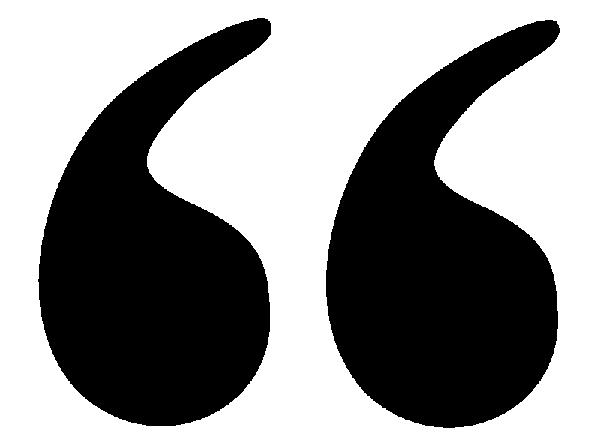
myself on the idea that I’m pretty sexually progressive, and open to most things for me and my relationship. But the last week when I walked into Ann Summers by myself, any determination had rapidly fizzled out. The sight of dildos the size of my forearm was daunting to say the least, when a sales assistant asked me what I was looking for, I suddenly felt entirely out of my depth and also incredibly embarrassed. I spent the next few minutes walking round in a circle, despite knowing what I was looking for, occasionally picking something up before immediately shrinking back into
my insecurities.
I’ve owned quite a few sex toys in the last few years, I wasn’t particularly picky because I didn’t know what I liked. However, I quickly found out that sex toys are a really insightful way to discover your sexual interests. Like porn or smut, experimenting with toys offer you a comfortable environment away from societal pressures to explore yourself.
Despite owning and enjoying sex toys, my experiences were also trials, testing the waters before running back to shore. I was out of my comfort zone, and at first, I thought this was all down to the toy that I was using. Penetration alone wasn’t entirely fulfilling but trying to multitask with sex toys on top of that was awkward and uncomfortable - it entirely threw me off. I started learning
more about clitoral stimulation and it was extremely beneficial and despite having an active sex life for the past 3 years, it was these kinds of devices designed for ‘self-love’ that taught me what I want.
This kind of self-exploration isn’t always accounted for in sex, particularly in heterosexual sex. There definitely seems to be a priority towards male satisfaction in sex rooted within our society. The misconception that sex finishes once a man has climaxed in heterosexual sex leaves their female counterpart feeling unfulfilled. You’ll find even in the most generous examples, there’s a pressure to reach orgasm, especially for straight women, as a man waiting for you to finish too is basically unheard of. Ultimately the patriarchy is fundamental to our sex education. The idea that
sex starts with penetrative sex and ends with male ejaculation is detrimental. The female orgasm is barely accounted for and there’s so much miseducation surrounding queer sex too. Even if we may think we live in a sexually progressive society - we definitely aren’t there yet.
Sex toys provide us with a safe space, but still I found myself feeling uncomfortable, awkward, and self-conscious. The pleasure was great, but I was trapped in the confinements of my own ideas of what female pleasure was. Again, society strikes forth! It hits us with the biting example that sex toys are needed because of the absence of a penis. So much lesbian porn includes a strap on, endorsing the impression that women need, and require penetration to orgasm. Even when me and my partner were trying out sex
toys, I felt myself wanting to ask the question, “You don’t think I need this… instead of you?” because of these patriarchal ideas surrounding sex.
The truth is sex is so much more than pleasure itself. Sex is a form of intimacy as you’re finding what’s right for you and your partner. There’s no exemplar way to have sex, no matter what you think - It’s completely subjective. Sex is about exploring, and sex toys can provide you to discover your wants and needs. It’s fun, and it breaks down boundaries about self-pleasure I didn’t even realise I had. If we as a society could accept the large ideas of female pleasure beyond penetrative sex, there would be way more orgasms.
The girlfriend guide
Sienna Norris Features Editor
Being an adult and forming new friendships is a pretty difficult thing to do, especially as a woman. I’m sure for everyone the pandemic cost us relationships and turned us socially awkward, unable to make friends. Over the past few years, I found ways to make new friends and sustain those friendships with women as a result of working on myself and knowing what was good for me.
As a ‘girl’s girl’ I’ve always been surrounded by amazing female friends, some of them remained in my life and some didn’t, but after experiencing the effects of COVID, meeting new people felt like learning to walk again. I think it’s beneficial for people and women in particular to know they aren’t alone. There are a million ways you can create new female friendships, and I’ve found these to be the most useful:
We are living in a digital ageso use it to your advantage! I’ve connected with women on social media purely through common interests and mutual friends. If you’re following someone you have maybe seen out about and think they’re pretty cool, why

not comment on their post? Drop them a message even.
Moving away from the phone screen, for me the biggest difference in my social life postCOVID came from joining clubs and societies. I’m on a sports team with women that all moan the same amount as me during our warm-ups, I’m also on a society with people who have the same passion for writing as me. Recently I became a part of a fundraising group that connects people from all over the country and we get to delve into the importance of intersectional (and international) feminism. If you’re not at university it can be daunting trying to find groups or clubs that work for you but simply just a google search can lead you to amazing opportunities!
A little goes a long way. A lot of my present relationships with women began with a simple compliment. “I love your top!”
“Your hair looks great!” Not only does a compliment lift someone’s spirits and brighten their day, but it can also thread into deeper conversations. Next time you pass a stranger and admire something about them - their outfit, hair, makeup - compliment them! Even if this doesn’t start up a full-blown friendship, it gives you confidence to strike up conversations that could lead somewhere, there’s no harm in trying.
Essentially making and maintaining new friendships all boil down to commonalities, so expand your horizons! For so long there’s been this narrative clouding female friendships in which they’re pitted against one another, but why? Why have we been taught to act more or less like the girl standing next to us? Cleansing yourself of toxic mindsets can bring so much difference to the way you see not only yourself but those around you. Sustaining female friendships as an adult can be difficult sometimes, but these are the people that will matter most in your life in the years to come. The more you get to know yourself the more you’ll know the people you should surround yourself with, so instead of comparing yourself to another woman, change the narrative and think, “She actually might be really cool, I shouldn’t be judging her.” You’d be surprised how much this can do.
14 14th March 2023
“The pandemic cost us relationships and turned us socially awkward.”
Image: Unsplash
Feminine rage
Lily Boag Features Writer
Female rage in the media is often curated to satisfy the male gaze. It features the woman who once conformed, who fits into a little neat box. Usually she’s young and beautiful, or in a traditional role of female domesticity: a wife, a nurse, a schoolgirl. Until the woman who behaves becomes the woman who snaps. They become psychotic, vengeful, crazy. Pushed to the edge, they break through their meek, naïve, submissive shell. Soon they transform, a violent force of nature, damaged but determined, all while adopting their new promotional
tag as a certifiably ‘sexy’ psycho. I was 14 when I first started becoming harassed in the classroom, and I wasn’t left alone for almost two years.
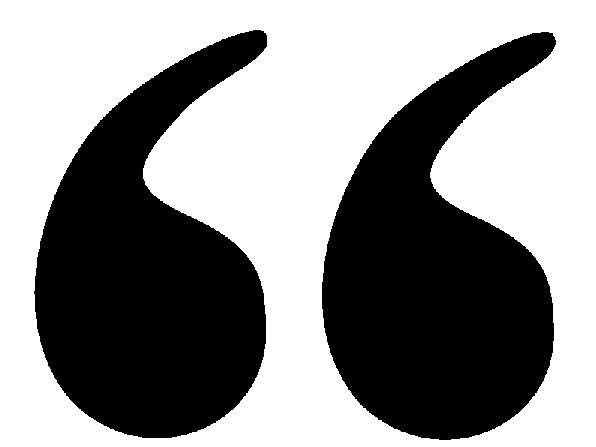
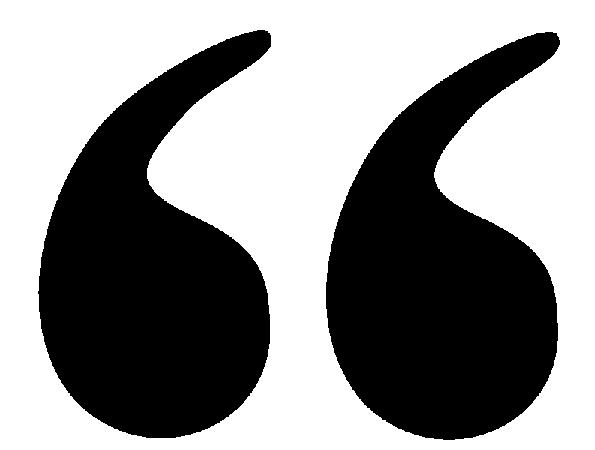
Provoked by the same perpetrator, stalked down the hallway by his friends, touched up by a classmate. Soon I became afraid of men, anxious when I had to sit next to a boy in class. I felt physically uncomfortable, holding my breath, and clinging onto my chair with sweaty palms. I was constantly afraid of entering a room, fearing what I could be walking into. I became the punching bag and the punch line every day of school. I was filled with so much rage it broke me on the inside. Constantly under the spotlight, I didn’t seek help because I didn’t want the attention. I didn’t want to be visible or take up any more space. And as my
teachers watched on as it happened, I convinced myself that no one could help me. So, I fell into depression, until it developed into a disorder, and I lived in a state of anxiety, until my mind became nothing but anxious. I was only 14 when I was filled with rage. And still I find myself silenced. Women are getting angrier and are becoming less afraid of showing it. From Donald Trump becoming president to the murder of Sarah Everard, conversations about misogyny and the female anger that accompanied it became a turning point. Something about Everard’s death at the hands of a police officer fuelled a fire in women across the nation. As police officers went door to door to tell women to stay home, it became a case of victim-blaming.
We were reminded of the social law women are expected to abide by. Recently people have been showcasing female rage in cinema which leads to the bigger question as to why we tend to bite our tongues in situations we should be shouting and screaming. It got me thinking about how I felt as that young school girl afraid to speak up, risking my own safety out of fear of being judged or ignored or labelled as crazy.
So, yes. Women have a lot to be angry about. Women have reasons to rage. But it seems women are starting to unpick these social norms and questioning if it’s really worth sacrificing our sanity just so we can look like the perfect woman. Sensitive not aggressive. Attentive
not assertive. We’re indiscreetly told that anger is the mark of masculinity. But growing up to become aware of these problems, to open our eyes to these disparities, women will become increasingly comfortable to admit they’re filled with rage. It starts with the little things, every woman in the world has been told to smile by a random man. It happened to me when I was 16. Around the same age I was eyed up by grown men driving past in vans. I was younger when I was first catcalled, shouted at on the street, I was a child. So be angry, take a leaf out of the book of women who have stood up against the patriarchy to voice their frustration.
Welcome to single town
Sienna Norris Features Editor
“Have you got a boyfriend yet?” The question I’m asked time and time again by friends and family. Well, the answer is no, and I intend to keep it that way. I haven’t been in a relationship since I was 18 and I’m now 22, even without the pandemic, I doubt it would’ve ended up any different. Being single is my choice because quite frankly I’ve come to really enjoy my own company and space, I also can’t be bothered with dating and relationships at this point in my life.
During university, I have changed a lot from that naive, hopelessly romantic girl writing her UCAS application. She would’ve been disgusted at the sight of her future self calling a trip to Hobbycraft a self-care date. I know there’s definitely some deeper-rooted issues to my opposition to relationships but above all, I couldn’t think of anything better than getting into bed early with my back pillow (don’t laugh) and chucking on Real Housewives, the thought of a dinner date repulses me.

Some people may be reading this and thinking that I’m a freak or loner, but I am satisfied with my status as a single woman, beyond satisfied, and if I were a guy it wouldn’t be a problem.
Your twenties are a strange decade, I’m not too far in and it’s really not all it’s cracked up to be. All of my friends are in different situations, some have been in relationships for years, some exploring the dating pool and some wanting to be married and pregnant by the age of 27. My friends and family joke that I’m a spinster in the making and they couldn’t be more spot on. But I love it. At the moment all I want from life is to live in a cottage with an array of animals and crocheting any and everything - Sounds pretty funny, but I’m being deadly serious.
Amongst my friends, it’s a wellknown fact that I am an 80-year-old woman trapped inside of a 22-yearold’s body, but I relish it. I don’t drink anymore because I can’t hack it, I have a bad knee, my back aches a lot and I’m normally in my pyjamas by 6pm, yet they all come to me for relationship advice! I’ve found that learning to love me, therapy and prioritising myself has been a game changer, allowing me to impart wisdom I’ve learned onto my friends.
Before coming to university, I was convinced I was going to meet a guy and have my first adult relationship, but I’ve really not lived up to my teenage self’s expectations and I couldn’t be happier about it. You see, I had everything planned out, I was going to play the field for a year or two then get into a relationshipYes I’m aware it’s quite pathetic. I’ve been on a few dates at uni and lack of chemistry aside, it had me questioning if I really wanted a relationship because that’s the end goal, right?
Recently there’s been an influx of women declaring the joys of being single, if this was 100 years ago, these women would have probably been sent off to some form of institution. This leads me to the double standards of heterosexual men and women; men can be single well into their forties and no one would bat an eye? But a woman in that position? There must be something wrong with her.
There’s been such a surge amongst women realising how awesome being single is recently. But if you feel you thrive better in relationships then do that! As much as I wish I was a casual dater, I’m far too lazy for all of that, so single town it is and I wouldn’t have it any other way!
14th March 2023 15 concrete-online.co.uk/category/features/ | @ConcreteUEA
From quiet schoolgirl to global female leader, farewell Sturgeon
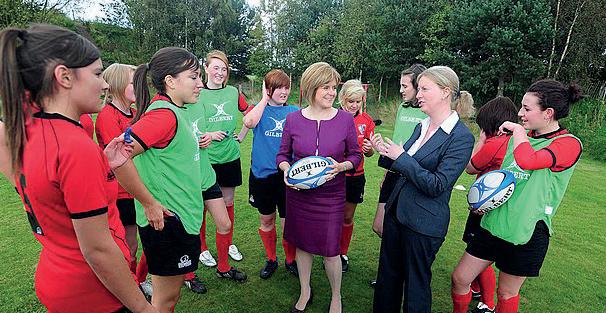 Amelia Sarmouk Comment Writer
Amelia Sarmouk Comment Writer
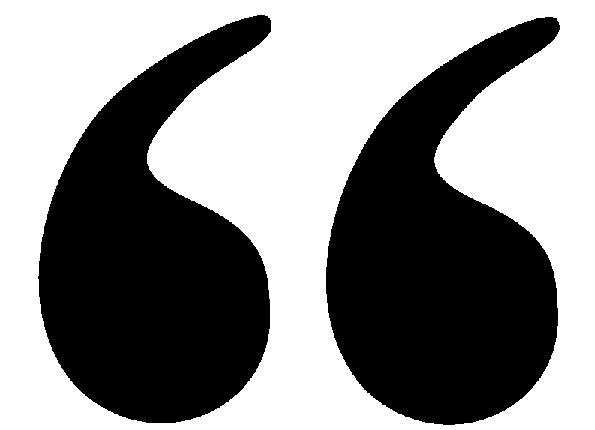
Sturgeon amongst Scots had a slight marmite effect. There is no doubt in her popularity as a leader with her sweeping 56 out of 59 seat win in 2015, and continued electoral success until the recent 2019 election. However, Sturgeon’s political stances were certainly polarising. Whenever I spoke to Scots, you either heard admiration and total support, or anger and dismay at her politics. One thing is for sure: whether you agreed with her politics or not, she certainly was a successful politician in her own right across not only Scotland, but the entire UK. Her presence in UK politics has been undeniable.
Sturgeon was brought up in
the Ayrshire town of Dreghorn, and described herself as a ‘quiet girl’. She was inspired to get into politics during Margret Thatcher’s rule in the 1980s, blaming Thatcher’s policies ‘for the decline she saw around her’. Subsequently, it could be said that her town, which suffered a great deal of unemployment in the 1980s, catalysed her political platform driven by core socialist principles.
I’ve never been totally sold on the idea of Scottish independence despite being half-Scottish and aligned with Scottish culture, yet I’ve always seen Sturgeon as a female role model. As a young female politics student, Sturgeon definitely excited me. She struck me as a politician outside the usual realm of the political Westminster classes. Observing Johnson’s behaviour during Partygate, Sturgeon, contrastingly,
was a leading example of what a politician should be. She emphasised the need for transparency and championed principles of honesty, never considering herself as above ordinary voters.
New Zealand Prime Minister Jacinda Ardern recently stood down on her own accord. Comparatively, looking at Boris Johnson and Liz Truss’ resignation, they were somewhat forced resignations, caused by mounting pressure from the public. Moreover, Sturgeons’ ability to see flaws in her leadership should credit her transparency, as she acknowledged that change was necessary to Scotland’s future. Specifically, Sturgeon said in her resignation speech that “Since my very first moments in the job, I have believed that part of serving well would be to know almost instinctively when the time is right to make way for someone else”.
and subsequently future of the nation.
Looking forward, whether Kate Forbes or Hamza Yousaf have the gusto and strength to engage the SNP and Scotland ahead of next year’s general election and important May 2023 local election, will be contested. Consequences for a divided SNP government in need of preparation is inevitable. Despite Sturgeons’ Covid handling success and electoral triumph, there are legitimate issues left untackled Sturgeon’s successor must tackle these, some of the most important being those related to the public services and the Gender Recognition Bill.
Importantly, her resignation speech is something to focus on. This is due to the nature of Sturgeon’s exit being one of choice rather than outside mounting public dismay. Similarly,
Ardern and Sturgeon’s honesty in the midst of the toll partisan politics has taken, is something to credit too. It is refreshing to see politicians step down when necessary for the future leadership
Say goodbye to independent businesses
Louise Collins
Writer
With the cost-of-living crisis in full force, it’s no surprise that our local businesses have taken a hit. The service industry has always been a beloved one, but if you’re a smaller business, you may have always been in a bit of a tricky situation. Now that energy bills and food have increased, smaller businesses have found themselves sinking too deep.
Here in Norwich, the city is full to the brim of independent cafes, bookshops, restaurants, and so many more. It’s truly a city of hidden delights, and that’s always been a wonderful thing. Now though, most of our favourite independent businesses are
having to shut down as they can’t afford to keep going.
Artel has to be the place I’m most upset about closing. Their vanilla oat iced lattes were the best I’ve ever had, and their food, much of it sourced from Fra.Kost, was always so delicious. The vibes within Artel truly were unmatched, with a whole floor of seating surrounded by plants. One of my favourite things to do was head in there, grab a coffee and a snack, sit upstairs by the window, and work on some writing. It was such a peaceful environment, yet so far away from an often-stifling library setting. Artel closed on February 26th, writing a farewell message on their site, reading, “Artel isn’t the shop –it’s all of us. Artel is every single
person who’s come through those doors and felt like they belonged.” And, as someone who felt so comfortable there, it truly held a sense of community. JoJo Maman Bébé is another loss this year, as is Frank’s Bar, a café bar which lived in Norwich Lanes for 15 years.

So, why is it that so many bars, restaurants, and cafes are shutting? As mentioned earlier, bills and ingredient costs are rising, but it’s also that less people are going out. The Office for National Statistics (ONS) states that “debit card spending fell 9 percentage points in the week to 26 February”, with the service industry and travel taking the biggest hit.
Over 65% of adults in GB are spending less on nonessentials. So, that’s your iced oat lattes, or your Tapas, or your Pornstar Martinis. With rising prices everywhere, people are finding it harder to justify spending £5 on a coffee, or £6.50 on a drink. Why spend money in the city when you can stay at home and have the same experience?
Rather than spending upwards of £30 per person on a meal, more people are having their meals in, experimenting with cooking, or inviting their friends over for homemade cocktails. It’s cheaper, after all, to buy the bottles of alcohol yourself and make them at home, alongside having the fun experience with friends away
from the crowds.
I, myself, am trying to cut down on my spending habits. I’m making lunch at home more, rather than buying it on campus or at work every day. I’m fighting the urge to buy new clothes daily, and instead of buying a latte at Unio, I’m taking advantage of the hot tap in scholars. They’re little things I’m doing to save money, and people everywhere are doing the same.
The cost-of-living crisis is having an effect on us all. We might be saving money by reducing our spending, but, unfortunately as a result, small businesses are suffering some of the harshest consequences.
14th March 2023 16 Comment
Comment
“She emphasised the need for transparency and championed principles of honesty, never considering herself above ordinary voters.”
Photo: Wikimedia Commons
When will misogyny and racism in the Met Police be tackled head-on?
employees indicates a function of the state with unfocused values that quickly becomes dangerous.


Every other day a new scandal within the police seems to emerge, whether it is strip searches of children, racist and sexually violent WhatsApp texts, or another reveal of assault and sexual abuse by an officer. These revelations are rapidly diminishing what trust is left in the police as a force of protection. The Met police is only pledging to review over 1,000 allegations of violence against women and girls by officers after public outrage over Met officer David Carrick’s conviction as a serial rapist. The Met’s lack of previous action shows an unacceptable oversight of their own employees and lack of care, in which they have created a culture of non-accountability and dismissed abuse cases. The amount of power handed to inadequately vetted
Instances of racism, particularly against black people remain overt and almost completely denied by the Metropolitan. Chris Kaba, a 24 year old
to-be father, was shot and killed by a Met officer last September after being pursued by an unmarked police car, yet his family is still waiting for the officer to receive criminal charges. The lack of decision in a case of clear transgression on the fault of
the Met has called into question whether Kaba would have been shot in the first place if he were not black. Inquest, an independent charity watchdog of state deaths, found in their report, ‘I can’t breathe: race, death, and British policing’, that black people compared to white are seven times more likely to die following police contact involving restraint. The report details how not one of these investigations of death concluded in racism or discrimination taking place or responsibility around the events. This and lack of follow up/ questioning of these conclusions despite death by this state system marks how the discrimination balances on early silencing, supported by deep rooted biases and stereotyping. The Met refuses to recognize institutional racism and to make matters worse, Inquest’s investigation reports that the
Independent Office for Police Conduct (IOPC), who oversees complaints against police, uses neither “guidance on whether discrimination has taken place, nor the way it is interpreted in practice” that align with requirements in the Equality Act.
sparked by the murder of Sarah Everard by Wayne Couzens, an officer in 2021, have led to calls for policy changes, yet assault and abuse by police against women remains prominent. The Met requires systematic reform, and this is evident during the four-year period up to 2020 where out of 119 cases of sexual misconduct within the Met, only 63 officers were dismissed as a result. The inability to criminalise serious offences is a clear sign of deep-rooted dysfunction within the Met that they must accept responsibility for.
The misogyny in the police force also underlines that we are looking at a male-dominated organisation that holds the power to use force and is allowed to do so irresponsibly. Conversations
Amidst the stories of American racism and police brutality, we must remember that the UK is not devoid of such violence either. The Met must do more to tackle racism and misogyny, instead of addressing it when a national tragedy occurs.
Students supporting the strikes still feel the impact
In the previous Concrete issue, I and one of Concrete’s Deputy Editors wrote a piece about UCU strikes explaining the peak of the strike action and the 18 days of disruption. In the simplest of terms, the UCU strikes are a series of 18 day strikes university staff have taken in response to the management-imposed disputes over pay, pensions, working conditions as well as other inequalities they have been facing.
During the strikes, students had been going onto the picket lines in solidarity with
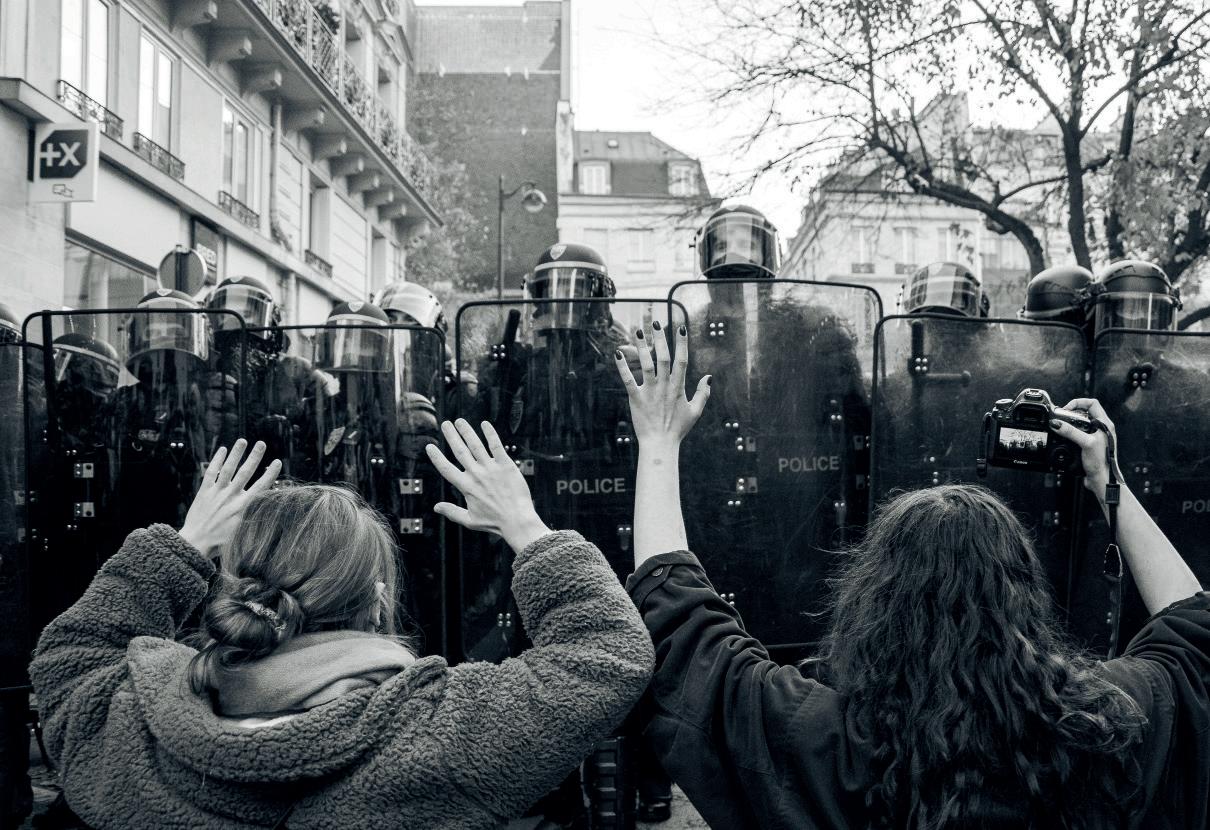
staff, holding up posters and having conversations with them. Showing up and being a visual support communicated to others that the strikes were not in combat with students. No one wanted them to happen, but for there to be some active change they needed to happen. Students have said that strikes have allowed workers’ rights to be fought for and won. From a 5-day work week to minimum wage, to mandatory breaks – through striking we’ve managed to make real change already.
UCU strikes are necessary in order to enact reform and conversations have already started happening. This can be
seen by the halt in the strikes that took place just a couple of weeks ago. Some students believe it’ll work, others have less faith in the strikes. Ultimately, it’s going to be a driving force to encourage universities in the long run to recognise the wants and needs of their staff.
However, despite many students being in support of the strikes, they have also been negatively impacted. The lack of teaching and reversion to online resources instead of in-person lectures and seminars is particularly frustrating at a time where students have to spend so much to fund their education. Online teaching has never

been as beneficial as inperson, but staff have been left with no other option. Staff don’t want the strikes to have even more of an unnecessary impact on our education than it already has, but they must also get their message across. Causing an inconvenience or disruption unfortunately yields results.
The cost of university now in comparison to prior generations has skyrocketed, meaning that the degree itself has almost plateaued in worth.
UCU members do not want to strike but are being forced to in order to save the sector.
The downside is the impact this has upon staff and their students. It’s heart-breaking to hear and listen to the need to strike, but the solidarity is overwhelmingly humbling.
Moving forward, Sunak’s government urgently needs to listen to university staff. It’s about understanding the need for those working in academics to have a safe and comfortable lifestyle in order to keep providing the incredible work and teaching experience they give to students. If action is not taken nationally, teaching staff will leave for a better experience elsewhere.
17 concrete-online.co.uk/category/comment/ | @ConcreteUEA
Allison Ko
14th March 2023
Comment Writer
Ray Khawaja Comment Writer
“They have created a culture of nonaccountability and dismissed abuse cases.”
“Black people compared to white are seven times more likely to die following police contact involving restraint.”
Photo: Unsplash
Photo: Unsplash
Climate Change Corner: Prof. Rupert Read on UEA and the Climate Crisis
George Barsted Science Editor
Professor Rupert Read isn’t what most imagine when they picture a climate activist. His day-to-day activities revolve around being a professor specialising in Wittgensteinian philosophy at UEA. Unlike the image we might have of most climate activists, he doesn’t have a nose ring or poorly-dyed hair. Professor Read is more likely to be found picking apart climate denialism in the media with appearances on Question Time or in print for the Guardian.
Until recently, he was a spokesperson for Extinction Rebellion (XR), an environmental organisation hoping to use nonviolent civil disobedience to force the government into action on protecting the planet. The interview that follows touches on some of Professor Read’s work with both XR and his new emerging organisation Moderate Flank. He was asked about his views on starting as a climate activist, media portrayal of the climate crisis, his work since leaving Extinction Rebellion and even gave some advice for young people looking ahead to the future.
The full unedited version of this interview can be found on the Concrete website.
George Barsted: When did you first begin to take an interest in climate activism?
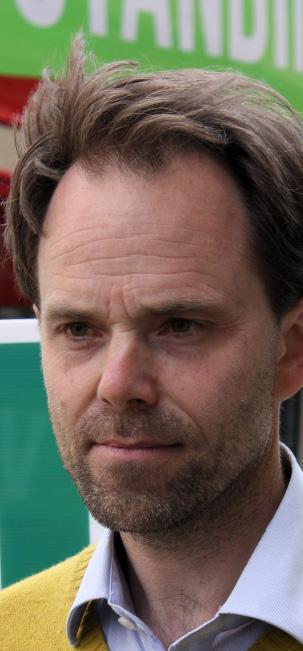
Professor Rupert Read: The memory I have that started my passion for activism was going on a march with my aunt and mum when I was ten, in aid of Save the Whales. What stood out for me was the commitment shown by those protesting, even though most of them, like me, had never seen a whale. This certainly inspired me onto the path of activism at university and beyond. Activism is necessitated by injustices and tragedies that go on in the world, and since the future will most likely see an escalation of climate disasters, I see no option besides continuing my activism work in the future and trying to do what I can against the deepening of climate chaos.
GB: Taking a look at some of your appearances in mainstream media (Question Time, Politics Live, etc) it seems that most forms of media seem to put conversation about climate as a binary issue with climate denialism often presented as an opposing voice. What are your thoughts?
RR: Yes, media shows often used to try to show ‘balance’ on an issue by finding two people who disagree and pitting them against each other. In the old days, it would have been me explaining the severity of climate change and representing climate science and the precautionary principle, against a climate denier. I am proud that, in 2018, I helped change this situation
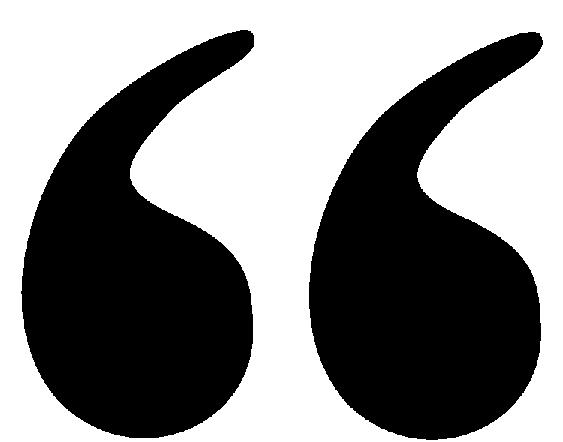

when I refused to go on a BBC radio programme to debate a climate denier, which led to the BBC seeing sense and no longer entertaining the nonsense of climate deniers for the sake of balance. As a result, this particular problem isn’t one I have to face too often anymore. Hard denial has, however, been replaced by a new and more widespread ‘softdenialism’, which manifests itself in phrases like ‘it surely won’t be that bad’, or ‘you’re being too ‘alarmist’’ or ‘think of the economy.’ All of these phrases show that climate decline is not being treated as the fundamental existential threat that it is. Being honest about climate change and the threat it poses to every facet of our society (including the economic paradigm!) is not in the shortterm interests of the private media cabal, and thus they are especially hostile to me and other climate activists and actionists.
GB: How does your work with Moderate Flank differ from your previous work with Extinction Rebellion? What would you say to those who believe there are diminishing returns with regard to disruptive protest in the name of the climate?
RR: Extinction Rebellion opened peoples’ eyes to the emergency of ecology and thus pushed environmental issues to the forefront of politics in the UK and abroad. For this, and a great many other things, I am extremely proud of XR. My role with XR was one of the very most exciting and important times of my life, and we collectively owe XR a lot. However, the thinking behind the emerging Moderate Flank was that XR was becoming too radical in some of its words and actions to be a place where everyone or even a majority would ever feel comfortable being associated with them (that is not to say they were being too radical in comparison to the threat of climate change; no, the need to tell the truth about this threat is, in fact, graver than ever, and that is what I continue in my books - and in my teaching).
undertaken in local communities, in workplaces, in businesses and more. The new Moderate Flank has the potential to be a far larger movement than XR, and I am deeply hoping this new approach will resonate with a great many people. I think that this endeavour to build with many others what we now call a ‘Climate Majority’ will end up being my life’s purpose.
GB: With regards to UEA and the current financial crisis it finds itself in, do you think climate research funding at the University should effectively be ringfenced to better understand the climate crisis?
RR: If ringfencing climate research funding came at the expense of the usual targets of drama, art, scriptwriting and media, for instance, it could easily devastate these subjects. We at UEA are known worldwide for our scriptwriting and creative writing courses, the latter of which is of course the oldest in the country. Crucially, the role of the arts in conveying the severity of the climate and ecological challenge we face to the general population is so far underexplored but deeply promising territory.
Far from this kind of work being threatened, it should itself be protected. Ultimately, there is a case for central government support for UEA through these tough times, because the work we do concerning climate narratives is of international significance.
GB: What are your thoughts on the University’s plans to become Net Zero by 2045? Do you think the UEA is adequately equipped to achieve this, in addition, is this the goal that they should be going after?
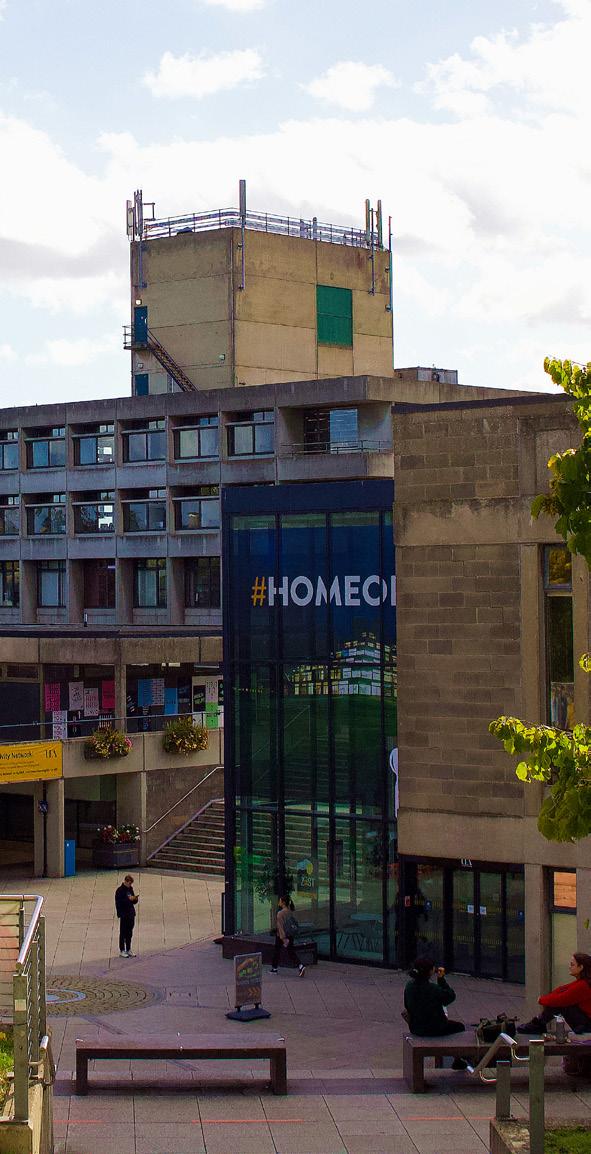
of the best universities in the world for researching the climate crisis and that those students who are studying for example biology, ecology, and environmental sciences will be well placed to continue ecological and climate research and to apply it in their lives and work, but I am (to say the least) unconvinced that all students in every subject are receiving the necessary climate/nature education. It would surely be a tragedy if people are leaving UEA after 3 years or more without having encountered much climate education, so I would like to see more cross-disciplinary and perhaps compulsory modules on the subject, especially for courses like business, economics, or finance which may not ordinarily be imbued with a focus for the environment.
Because the bottom line is that, unless collectively - as a civilisation - we get our act together on climate and nature, everything will be swept away. There is no excuse any longer for subjects like Economics and Business Studies not to place a central focus on ecology, beginning with ecological economics. Any UEA student whose programme of studies excludes taking the existential threat hanging over us all with full seriousness - and, incredibly, that still means the clear majority of UEA students - ought to feel emboldened to press their lecturers on why. Why aren’t you being taught in detail about how to handle the predicament which is going increasingly to define your entire lives and careers?
GB: What would you say to a university student who may be worried about the future and the climate crisis?
with others how to handle it, how to turn it into energy for action, and act with others in growing confidence that locally and beyond we can make a huge difference on this. XR and Greta Thunberg have been only the beginning. The coming climate majority is going to change the world; at the very least, we will transform much as we adapt to the climate damage that is already here.
Learn how to grow food as well as whatever your subject teaches.
Learn how to build community, and build it.
Prepare, and become resilient. We need you too; so we need you to.
Thus, I and several colleagues who were also moving on from XR felt that a huge proportion of the population were concerned about climate and wanted to meaningfully do something about it, but simultaneously couldn’t get behind XR. An alternative was needed that aimed to be as inclusive as possible and to ground the environmental movement in meaningful action that can be
RR: Net-Zero plans are all the rage at the moment, and they are certainly better than no plan, but there are serious issues with them. Most obviously, setting targets that are decades away is unhelpful. We need to get our global emissions down now, and so if a university in the high-emitting ‘developed’ world, which is one of the leading universities on the planet for climate research, is taking over two decades to get its emissions in check, then it shows that UEA still isn’t taking the threat of climate change seriously enough and isn’t interested in becoming a leading example of what academic institutions can and should be doing. I would like UEA to be far more ambitious and set a Net-Zero target for 2030 at the latest. I want to see UEA become the first major net-zero university in the world, lead the way in what is possible, and set an example that UEA’s staff, students, and alumni can be proud of.
GB: Do you believe the UEA currently does enough to educate students on the climate crisis?
RR: UEA students will all be aware that we are one
RR: I think any student who is worried about man-made climate change is paying attention. Well done.
Don’t assume that your future is going to involve a career in the traditional sense that your parents probably had careers. Don’t assume that life is going to go on in some kind of state of normalcy for the next sixty years. Don’t assume that the UK is going to be immune to the tragedies that have already been afflicting Pakistan and Australia for example.
If you’re worried, then you’re sane. It is rational to be worried by a growing existential threat about which not enough by a long way is being done. Face the truth, feel the pain, and learn
Science 14th March 2023 18
ikimedia Commons
“The future will most likely see an escalation of climate disasters”
Source: Prakrita Rahman
UEA leads in lab access for scientists with disabilities
Emily Erith Science Writer
UEA has uncovered the reality facing some disabled people working in STEM (Science, Technology, Engineering, and Maths). An online survey devised by researchers has concluded, and initial findings confirm, that for the disabled community, the current offering is ‘insufficient and damaging’.
One respondent even divulged; ‘My lab broke me – I hope others are better’. An in-depth analysis is set to take place over the coming weeks and months. But what can be revealed is that over 90% of laboratory workplaces didn’t have a clear policy to allow assistance dogs to attend. Approximately 30% of respondents had witnessed a disabled person being bullied in a laboratory; whilst a third disclosed that they had been the victim of bullying in the last ten years. Nonetheless, over 70% did not report the bullying they experienced or witnessed. The survey which took around 20 minutes to complete was aimed at disabled people who are working in a laboratory or have in the past, as well as those interested in making labs more
accessible.
The desire to conduct this research came after a recent study showed a clear disparity in the number of disabled people working in STEM subjects. Around one in five working-age adults have a disability, but under 4% of UK academics working in STEM are disabled.
Alongside the survey, UEA staff are helping to redesign a refurbished accessible lab for Catalyst, in Edinburgh.

‘Lab accessibility in the UK is disastrous’ Dr. Deane remarked, there was ‘not a single contractor in the UK’ who wanted to pick the project up. Why? They ‘do not have enough knowledge’, they stated.
Dr. Deane believes that by collating the survey results, her team can begin to outline a set of guidelines that all labs can follow.
So how does STEM become more accessible? This is the difficult question UEA hopes to answer. Dr Katherine Deane, Lead Researcher at UEA’s School of Health Sciences, believes the first stepping-stone to change is quite simple - ‘Attitude’.
As I chat with Dr. Deane, in the New Science lab, it is clear just how incredibly proud of the building she is, a space she helped to design and bring to life. It is a hub for science, with accessibility at its heart.
Although she claims to be doing ‘nothing new’ or ‘innovative’, her work, and these future guidelines, can change lab accessibility nationally.
Bizarre Science: The Bigfoot Puzzle
Thousands of sightings across almost every state in America report the existence of an unclassified species of hominid, commonly referred to as ‘Bigfoot’, or sometimes ‘Sasquatch’.
The name derives from the 16 to 20-inch footprints the creatures supposedly leave behind. These footprints often with primatelike features, join other evidence including mysterious howls and whooping sounds at night, hair samples, and even the occasional video.
Of course, much of this ‘evidence’ has been debunked, with videos turning out to be hoaxes and footprints casts. Scientists
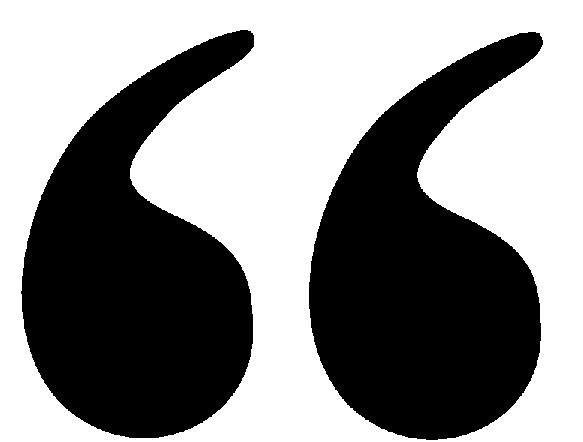
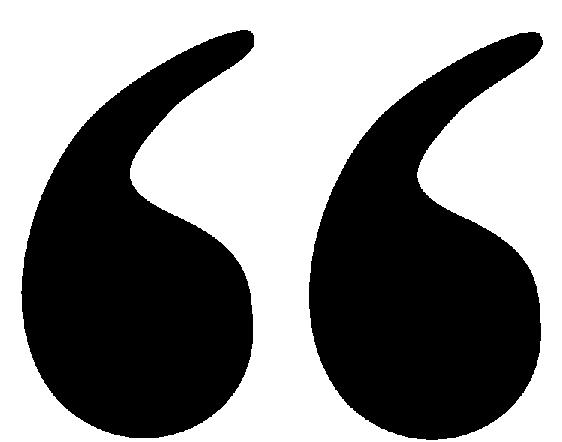

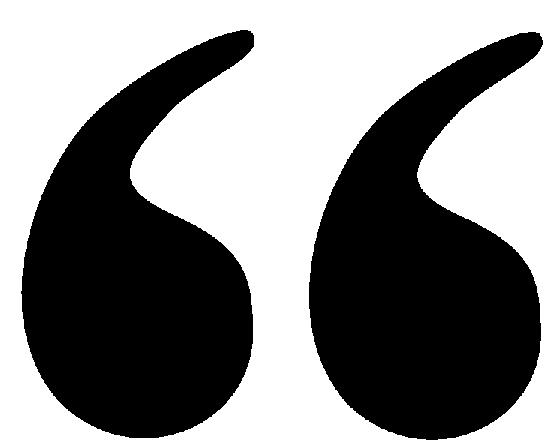
have helped to investigate the claims of Bigfoot believers, from primate experts to geneticists. For example, 18 alleged Bigfoot hair samples were genetically tested and all mapped to known species.
In a similar study, hairs from Bigfoot’s possible European cousin – the Yeti – also turned out to be from common species (mostly bears).
A recently released preprint paper explained many of the reported sightings collated by the Bigfoot Field Researchers Organisation.
Across the US and Canada, the study from Floe Foxon demonstrated that black bear population size correlates with Bigfoot sightings. The model predicts that 1000 more bears in an area leads to a 2.7% increase in sightings, taking account of human population size and land area.
There are a couple of states with no black bears, but the author suggests sightings in these areas could be accounted for by other native animals.
This is not the first suggestion that Bigfoot sightings are black
bears. The black bear does stand on two legs to get a better look or smell of something, which could make it appear like a hominid.
Bigfoot experts reject these explanations, however, as
Many have spent their time trying to find more evidence for the elusive existence of Bigfoot, perhaps as a few lone individuals or larger populations spread around the continent. They maintain that new species are discovered all the time and we clearly do not know everything that is out there.
although they stand at similar (6-foot) heights, bears lack the broad shoulders of Bigfoot, and have distinctive protruding snouts.
Granted, the newly discovered species are usually a little smaller, and rarely ones to whom so much effort has been devoted. And scientific studies like this one do seem to increasingly suggest that if Bigfoot exists, they do a good job of hiding...
19 14th March 2023 concrete-online.co.uk/category/science/ | @ConcreteUEA
Becky Sainty Science Writer
“Black bear population size correlates with Bigfoot sightings”
“A hub for science, with accessibility at it’s heart.”
“My lab broke me-I hope others are better”
Source: George Barsted
Travel & lifesT yle
I Drove An Old Land Rover Into a Warzone
Last month, after spending three days staring at autobahns, fields and bridges, myself and a small convoy of other Brits arrived at the Ukrainian border. We crossed into the country and headed for Lviv; a medium-sized city which became an international sorting office for aid coming in, and refugees coming out at the start of Putin’s war in February 2022. These days, the refugees have gone, but the aid is still coming in. Soldiers on the front lines in Bakhmut and Mariupol
are still in need of warm clothing and medical consumables, whilst other areas need diesel generators and spare tyres. The charity I work for, the YES fund, is facilitating the delivery of this aid across Ukraine.

I’ve been volunteering to help refugees with travel, documentation and translation since the start of the war, so being offered the opportunity to go to the country to transport a supply convoy of aid and vehicles was something I immediately agreed to. My car, which we christened the ‘Red Baron’, was an old Land Rover with 200,000 miles on the clock. It had been donated to us by a South London airport, where it previously served as a fire engine.
Old Land Rovers are not as reliable as you might think. Each morning, in another European country, the Baron would develop another frustrating fault; a suspension warning light on day one, heater malfunction on day two, defunct windscreen wipers on day three. We sorted these the best we could, and the vehicle eventually made it to Lviv, where it was camouflaged and driven by another party another thousand miles east to the Russian border, where it will function as an ambulance to transport
wounded Ukrainians.
Lviv is a gentle city with a welcoming feel. Whilst in a bar there, our local fixer Serhiy explained that the city was shelled badly at the start of the war, but today is mostly hit with infrastructure attacks that shut off the power and occasionally the water supply for intermittent periods. Most buildings have bomb shelters - a hangover from the Second World War - and whilst air raid sirens ring out frequently across the whole of Ukraine, I didn’t hear any during my 24 hours in the country.
It was strangely emotional to say goodbye to the Red Baron. Having driven her 1100 miles through seven countries, it was pulling into Lviv that I realised there was every likelihood the car would be destroyed during the war. We dropped off our vehicles at a paint shop and took the train back to Poland.

I’ve travelled extensively across Europe, but I knew this trip was going to be different from the start. There were entertaining moments, such as when I, in the passenger seat of another vehicle, was breathalysed
by Dutch police due to being seated on the European ‘drivers’ side, and beautiful moments, like seeing the Red Baron covered in snow one early morning in a small Polish village. What separated this trip from the rest is that we had a job to do. Ukraine is a country at war. As Brits, I feel that it is our duty to deliver working service vehicles and essential aid to the men defending its territory. That, above all, was the priority of our convoy. Regardless of how long the war drags on, the rebuilding of the country will cost upwards of $100bn. Our
work to deliver aid and vehicles to Ukraine will continue for as long as it takes.
Слава Україні.
If you’d like to donate to the YES fund, you can do so here: https://www. justgiving.com/crowdfunding/fynnukraine.
Every single quid makes a huge difference, I promise.
If you’d like to get involved or know more, you can email me on jake. simpson@uea.ac.uk or Instagram @jacobesimpson.
Travelling as the Best Form of Education
Aged 14, I went on a school exchange to Reims, in the heart of the Champagne region and just east of Paris. My (definitely rose-tinted) memory of this trip is sitting in the garden of my French teacher’s parent’s house drinking fizzy wine and naively believing that I was oh-so-cultured. This was the fun story – the one that everyone at home laughed about. What really stayed with me after I returned from my ‘alcoholfuelled’ week away was how hard it was.
I stayed with a family who spoke no English and made no effort to communicate with me once they realised both that my French wasn’t particularly strong, and that we had nothing in common. The lesson wasn’t necessarily in learning the language – although it was much better when I returned home, and I still speak French now with the regional dialect – but in observing the lives of a family and understanding how to interact despite the language barrier.
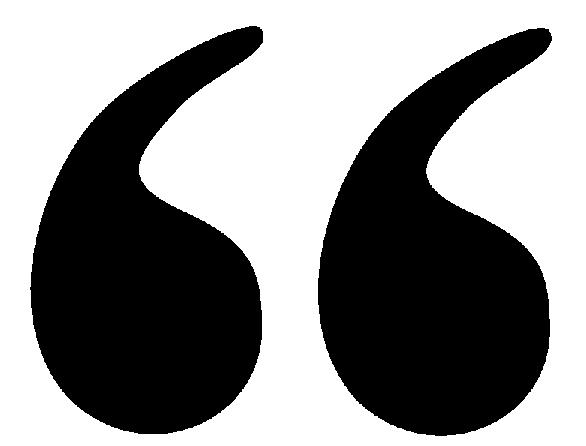
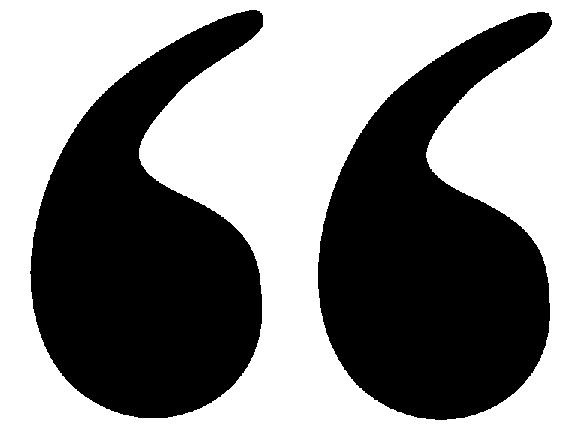
As a 14-year-old it was a hard pill to
swallow that cultures different to our overtly and embarrassingly polite British one will find our bumbling tomfoolery annoying. The trip was planned as an educational one; I certainly learnt a lot about the way I wanted to be perceived by others.
It was Gustav Flaubert who said that “travel makes one modest, you see the tiny place you occupy in the world.” I think he had something right there. Don’t get me wrong, I love France. But you can’t always be certain you’re going
Amsterdam, Berlin and Nice all have free options to European union citizens under the age of 26. So does Paris. The City of Light is famed as a tourist trap for lovers who want to escape for a weekend, climb the Eiffel tower and eat their body weight in baked camembert. It is dirty. It is busy. It is touristy.
to like what you learn by travelling.
More recently, I learnt that something that Brexit stole from Gen-Zs is free entry into museums and galleries in many major European cities;
But it is also a bustling and lively city that is packed full of history and people. Sadly, now we have to pay for entry into the museums and galleries, but the Musée d’Orsay is worth the €16 just to appreciate the richness of the French impressionist scene. Only those who visit the Palace at Versailles can truly appreciate why the French killed their king in 1789. Ultimately, however, I believe that the joy of travelling and experiencing the world exists in

the smallest moments. A road-side impressionist who laughs and calls after you when you refuse his business. The students and young professionals who flock to the banks of the Seine on a summer’s evening and drink lukewarm beer out of glass bottles. The elderly couple who dance in the street to the soundtrack of police sirens and an accordion-playing busker.
The waiter who sits with you when the restaurant is quiet to talk to your football-fanatic boyfriend about the controversies of the day’s matches.
The greatest education comes from those you meet and the lives you witness unfolding. Though it may just be a moment, these are the travel memories that stay with you for a lifetime.
20
"Our work to deliver aid and vehicles to Ukraine will continue for as long as it takes."
14th March 2023
"The greatest education comes from those you meet and the lives you witness unfolding"
Jacob Simpson Concrete Writer
Photo: Concrete, Jacob Simpson
Photo: Concrete, Jacob Simpson
Photo: Concrete/ Emily Goodiwn
Emily Goodwin
Travel and Lifestyle Senior Writer
concrete-online.co.uk/category/travel/
How Do You Learn?
In education we mark our progress through assessments, from SATs and GCSEs to A Levels and university summatives. For most of us this is a daunting prospect, and it is a struggle to adapt our way of learning to these exams; one size does not fit all.
Though simple, the biggest key to successful learning I’ve found is to simply choose content you enjoy. I didn’t do as well as I’d have liked at GCSE level, and this was largelybecause I was spending hours a night crying
Lily Boag Venue Deputy Editor
People make stories. It’s the first thing you learn as a journalist. Everyone has a story to tell, a voice to be heard. And there’s a lot you can learn from a person, if you take the time to listen. It’s something we don’t practice enough. Mid-conversation our minds tend to tune out as we spend time prepping responses to what we predict a person will say. We interrupt and interject, and effectively, take their words away.
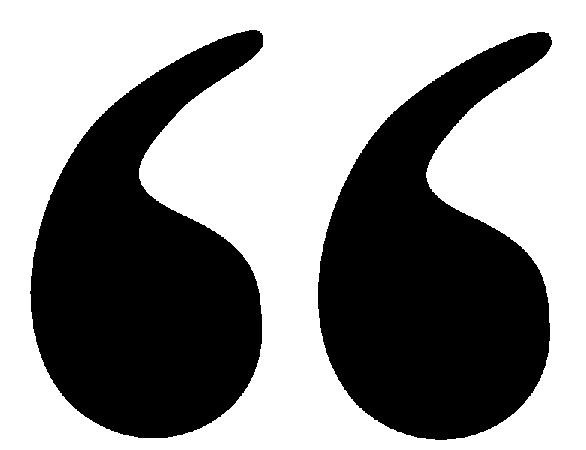

Socially we engage in a gossip culture, and indulge ourselves in spilling the tea. But we never make time to listen in a way that counts. To open our minds and change our perspectives. To develop our ability
over a physics book that brought me absolutely no joy and I couldn’t see any goal with. Moving to A Level, I chose the subjects I knew I’d love (at least for the most part) and came out with A*s! Not only will you more naturally put in the extra work for what you love, it won’t actually seem like work- I definitely studied significantly less for my A Levels, compared to my GCSEs as a result.
Now, I study modules across up to four different schools- which is a strugglebut the variety keeps me sane and consistently motivated throughout the semester. I had one week where I studied the politics of museums (not
to process. Through conversation we learn through shared experience and deeper understanding by relating and engaging with others. Participating in the trade of knowledge firsthand, we earn what we learn.
Active listening is all about observation, and making a conscious effort to comprehend and acknowledge. It’s about giving and receiving. Developing a stronger sense of focus. To actively listen is to seek what others overlook, to be curious enough to pull at the right thread until it becomes loose. You can learn a lot about the world if you open your eyes, watch on as it becomes more tangled and entwined. But through listening you can learn by pulling at each strand, until the world unravels in your mind.
my thing), my favourite Shakespeare play (yay!) and theological liberation theory (completely new to me, and incredibly interesting). The next week, it was completely different!
Of course, now you’re likely already a good chunk into your course and it may not hold as much variety as mine does- but my advice remains the same; find the joy in everything you study. Draw cute faces on your chemical structure diagrams, connect each concept back to your dream career. I promise, if you find even one moment of joyful motivation a day, it will make studying a whole lot easier. You’ve got this, good luck!
Joseph G. Collins Concrete Writer
From my experience, I would suggest three methods of learning. For the mere acquisition of information, I don’t believe there is a method superior to spaced repetition flash cards. Anki is one of the most commonly used apps that facilitates this style of learning. There is a lively
culture around the app across YouTube and Reddit. Medical students in particular seem to find a great deal of use from the app. I likewise have found it very useful for exam preparation.
To understand more complex ideas (like how theories or ideologies compare) long form essays seem to be the best way to truly grasp such concepts. I’ve never effectively learnt solely from lectures or textbooks. It’s not until I’ve done my own reading, and subsequent summary of the topic, that I can say I’ve
Photo: Concrete, Matthew Stothard
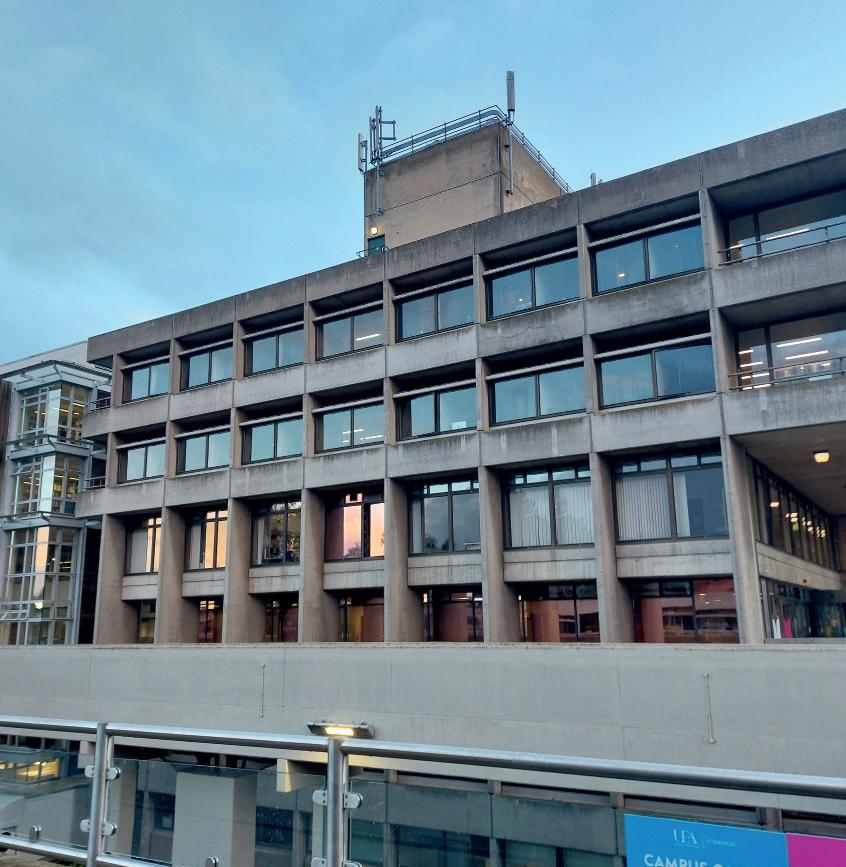
learnt something useful. Being able to explain complex topics to others, which is a significant aim of an essay, is crucial to understanding any complex set of ideas.
Yet sometimes when learning, you have to get a feel for certain things. Physical skills, be it cooking, kayaking, or judo, can be aided through written text and YouTube explainers, but such skills can really only be learnt through trial, error, reflection, and repetition.
People, Places and Literature: My Study Abroad
 Finlay Porter
Travel and Lifestyle Editor
Finlay Porter
Travel and Lifestyle Editor
Czechia taught me to learn from people. Last year, I took a semester abroad in Olomouc (ol-oh-moats), a sleepy little city dominated by UEA’s partner Univerzita Palackého. Leaving behind the City of Stories, I threw myself into what felt like a space vacant with possibility; an ancient Moravian landscape of unknown cultures and histories. What I lost in academia, I gained in close personal connections to people from wildly different positions to my own, and a chance to explore cultural and historical sites around central Europe.
I knew not to expect the same standard of literary criticism as the LDC modules I’d become used to at UEA. If I’m honest, I arrived with little intention of achieving more than the bare minimum I needed to pass my classes. But even though my reading lists were reminiscent of GCSE English, with in class discussion going little deeper than descriptions of character and plot, I was amazed at the fervour with which my classmates applied themselves. Native Czechs, all forging an ambitious path to bilingual academic excellence, they impressed me endlessly with their ability to tackle anything from
Shakespeare to contemporary sci-fi, and contribute insightful ideas in their second language.
taught me the most.
The Erasmus community, formed around the funding scheme which had allowed me to be there in the first place, is open and passionate. People from all around the continent fling themselves into your life with no assumptions, and I found it difficult to pursue my love for solo trips. I soon found that, while I had thought it perhaps strange to pursue a semester abroad for the sake of a historical, cultural experience, I was not alone.
roommate who fiercely supported an anti-vax protest in Berlin, or my close Iraqi friend whose upbringing spent sheltering from US bombs gave him an entirely different appreciation of the natural beauty of Moravia.
I learn through literature because texts are easier to process than people.
Of what little reading I did, what stands out the most is Milan Kundera’s wonderful The Unbearable Lightness of Being, and Vaclav Havel’s The Power of the Powerless. Through the familiar lens of literature, I was able to approach Czech history, culture, and, most importantly, something of the emotional identity of the Czech people. Both works (one novel, one political essay) convey a powerful message of resistance against hegemonic power, which felt all the more raw in light of the recent invasion of nearby Ukraine.
As a literature student, this mode of learning, this way of understanding life and the world through literary works, was familiar. But it was the people who
I travelled as much as I could. From Berlin to Budapest, from bustling hostels to rural lodges, I was always accompanied by some friends I’d met in Olomouc. They weren’t overly organised trips, and people would often split up to go and visit different sites upon arrival, some preferred to relax in thermal baths, while others sought out street food, and yet still more toured the art galleries. Drifting through various locations in central Europe in this way, I saw many new and wildly inspiring sights, from museum exhibits to great architectural feats and public displays. Yet each of these sights was enhanced by the comments and insights of my fellow travellers.
There was always a different viewpoint to draw on; whether it was my Greek
Photo: Concrete, Finlay Porter
14th March 2023 21
"To actively listen is to seek what others overlook, to be curious to pull at the right thread"
They are more concrete, less fluid and malleable. Easier to pin down. My study abroad to Czechia showed me the wonderful ways in which different perspectives can add depth to your own understanding. Sometimes, it’s useful to listen as well as look. | @ConcreteUEA
"My study abroad showed me the wonderful ways in which different perspectives can add depth to your own"
Libby Hargreaves Editor in Chief
Sport Gunning to Glory? The Premier League Title Race Heats Up
Alfie Green
Writer

This article is a sickening one to write as a Spurs fan, but it does appear that Arsenal are undoubtedly favourites to win the league. Putting all bias aside you have to be impressed with how Mikel Arteta’s team have responded to narrowly missing out on 4th place last season.
They sit top of the league on 63 points, and in recent weeks have shown the character and spirit of teams that win titles.
They just keep winning.
Late winners against Manchester United, Aston Villa, and most recently at time of writing a 97th minute wonder strike to beat Bournemouth after being two goals down has shown a grit and determination to win that doesn’t seem present with other sides in the league.
Arsenal have been bolstered by the signings of Oleksandr Zinchenko and Gabriel Jesus, bought ironically from closest challengers Manchester City, and they have slotted into the side perfectly. Although they have wobbled slightly in the last few weeks conceding two goals to Aston Villa and Bournemouth (albeit winning both).
Closest challengers Manchester City sit five points behind the league leaders, but their season has been one of inconsistencies. Four draws and as many losses have left City in the bizarre position of being the chasers instead of leaders of the pack. They have already lost one more game than they did last season, with losses to Brentford and Tottenham coming as particular surprises. Norwegian Erling Braut Haaland was signed in the summer and has made a mockery of goal scoring charts, netting 27 goals in 25 games alongside 5
assists.
However, for all the fire power Haaland has brought to City there has been questions around whether a central focal point has detracted from the free-flowing play City have been known for in recent years. Until this season they have operated without a recognised striker since the departure of Sergio Aguero, with Phil Foden acting as a false nine.

It may already be March but due to the Qatar World Cup there is still a lot of football to be played, so how will the remaining games affect who wins the title?
Well, the defending champions Manchester City still have to face three of the ‘top six’ with home games against Liverpool, Chelsea, and current table toppers Arsenal. This clash between 1st and 2nd should be pivotal in deciding who claims the title. City managed to defeat Arsenal 3-1 when they met at the Emirates early this year. City also face tough away trips to Fulham and Brighton who have both been outperforming their expectations this year.
Arsenal also face Liverpool and Chelsea, as well as the juicy clash against City. They will also have to factor in managing to play on Thursday nights in the Europa League, which has proven grueling for English sides previously. It remains to be seen how Arsenal will cope but if they continue to progress it will be interesting to see how a Thursday-Sunday match schedule will affect Mikel Arteta’s side.
The same could be said for Pep Guardiola’s men who will be focusing massively on the Champions League, the only missing jewel in Guardiola’s City crown. The Champions League has historically been less taxing on sides, with matches coming on Tuesdays and Wednesdays, but given how badly City will want to win the Champions League there
could be potential for them to prioritise it over defending their Premier League crown.

The title race could go right down to the wire, but it is not the only dramatic race this Premier League season, a resurgent Liverpool showed with their 7-0 demolition of Manchester United that they want a Champions League spot, with faltering Newcastle and Antonio Conte’s Tottenham Hotspur currently in their way.
Relegation is also an interesting situation, with huge clubs like Everton, West Ham and potentially even 2016 Premier League winners, Leicester City, getting dragged into it. Just 6 points separate the bottom nine clubs, which means that before the final day on the 28th of May anything can still happen!
No doubt what follows this season in the Premier League will be exciting, thrilling, and dramatic for all. You’d have to make Arsenal the favourites given their recent dogged performances, but you can never rule out Pep Guardiola’s Manchester City machine.
Personally, I believe City will pip Arsenal to the title due to their overwhelming experience. The one thing I can confidently predict is that the Premier League will throw up another thrilling conclusion to a gripping season.

14th March 2023 22
Sports
Photo: Wikimedia Comons
“You’d have to make Arsenal the favourites given their recent dogged performances”
Photo: Unsplash
Photo: Unsplash
UEA Golf win Midlands Conference Cup
UEA Golf
UEA Golf defeated Nottingham 2s, 4.5-1.5 to claim the Midlands Conference Cup. This comes after defeating both Nottingham 3s and Birmingham in the previous rounds.

We caught up with the triumphant UEA club:
“The boys were faced with a tough day out on the course. The wind and the snow made it rather difficult, but this did not stop the boys from playing some amazing golf and coming away with an enormous win!
Patterson once again strolled around the course holing every put he came across. That was his last match before he heads off to America to play college golf, what a way to end his season!
UEA veteran Badger played some amazing golf today coming away victorious for the final time. After 8 years representing UEA he did what he does best and secured a vital point as he’s done for many years!
The skipper came into today not in the best form but still was able to play some class shots that enabled him to dominate his opponent and come away victorious.
Iron accompanied the captain today proving he is a vital member of the squad. Consecutive birdies on 8, 9 and 10 solidified his lead and allowed him to win in his final match for UEA.
Duffy went out today against quite possibly one of their strongest players. He found himself up in the match at multiple points but unfortunately his opponent got the better of him.
The big man went out last today against the Notts captain absolutely devouring the course. On the 9th hole a flushed 4 iron almost gave him a hole in one on a par 4! His match came down to the final hole and the final put where he secured the final half point needed to get the win.
Club President Harry and First Year Rep Dan were out there all day supporting the boys and catching some class shots on camera.”
A massive congratulations to UEA winning the Midlands Conference Cup! They most certainly deserve it!
FIA Ban Drivers From Making Political Statements Without Prior Approval
Drew Murphy
Senior Sports Writer
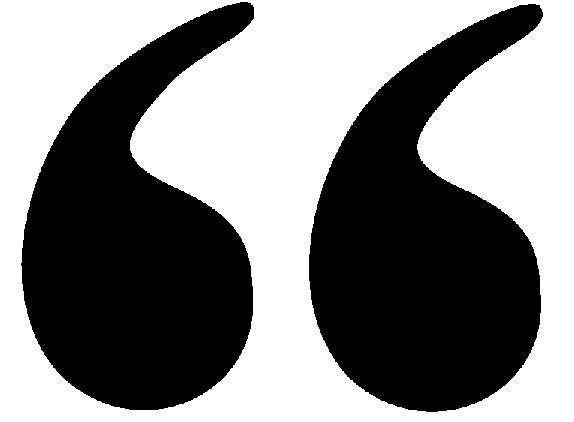
Red Bull’s Max Verstappen drove to a comfortable victory at the first race of the 2023 F1 season in a car that looks difficult to beat. But an issue aside from the racing remains a keen talking point in press conferences.
The F1’s governing body, the FIA, has put in place a ban on drivers making “political, religious, and personal statements” without requesting permission.
The new rule was added quietly during the winter break, but now the season is up and running, some drivers have highlighted their concerns.
Drivers and team bosses were asked their opinion on the new ruling, and some did not hold back their displeasure towards it, including seven-time world champion Sir Lewis Hamilton.

Hamilton has used his platform on
past race weekends to highlight social injustices and human rights issues worldwide. For example, Lewis wears a rainbow helmet in the Middle East to support LGBTQ+ rights and previously wore a t-shirt with the words “arrest the cops who killed Breonna Taylor” at the 2020 Tuscan Grand Prix.
When answering questions about the ruling, he reiterated the need to use his platform in motorsport for good. Hamilton is adamant that the rule will not stop him from “sparking uncomfortable conversations” and holding people accountable who have been happy with the status quo in the past. Hamilton was keen to highlight his belief that it is his responsibility to make a change and do the right thing.
Hamilton is no stranger to people telling him to limit his protests at a race. Ex-F1 Chief Executive Bernie Ecclestone reignited his feud with Hamilton, blasting his political protests, stating, “People do not go to a Formula One race to have a lecture.” He has previously
accused him of being desperate for attention.
Williams Driver Alex Albon was asked about the new ruling, where he revealed he was concerned. He stated how it was confusing to him and others how, back in 2020, F1 launched the We Race As One campaign to combat inequality and increase sustainability.
Red Bull Team Principle Christian Horner urged for there to be a “sensible balance” when it comes to F1 and speaking out on political issues. During Red Bull’s livery launch in New York last month, Horner was asked his opinion on the new rule. He explained how allowing drivers to have the freedom of speech and to voice their opinions and speak their minds is vital. Horner added how F1 should avoid having “a load of robots that are without opinion going racing.”
However, now F1 has decided to limit political statements. Albon emphasises how the public look to the drivers as spokespeople for issues worldwide. He feels he is responsible for making people aware of the injustices and social issues.
Alfa Romeo’s Valtteri Bottas weighed in on the conversation by also stating his confusion towards the new rule. He said, “I do not know why they want to control us...we should have the right to talk about what we want.” He also went on to say how he believes that in the past, F1 has done an excellent job of drawing attention to prevalent issues in today’s society.
With the Bahrain Grand Prix out the way, 22 races remain, and this will not be the last controversy.
23 14th March 2023
concrete-online.co.uk/sport/ | @Concrete_UEA
“I do not know why they want to control us... we should have the right to talk about what we want.”
Photo: Wikimedia commons
Photo: UEA Rugby
Photo: Unsplash
Photo: Unsplash
Photo: Unsplash
Photo: UEA Swimming
Photo: UEA Golf
UEA Men’s Volleyball and Women’s Lacrosse reach BUCS cup finals
Dan Laughlan Sports Editor
As the sporting season begins to reach the end, Men’s volleyball have reached the cup final in their BUCS season and will play Anglia Ruskin for the silverware. Their journey to the final, as told by the team:
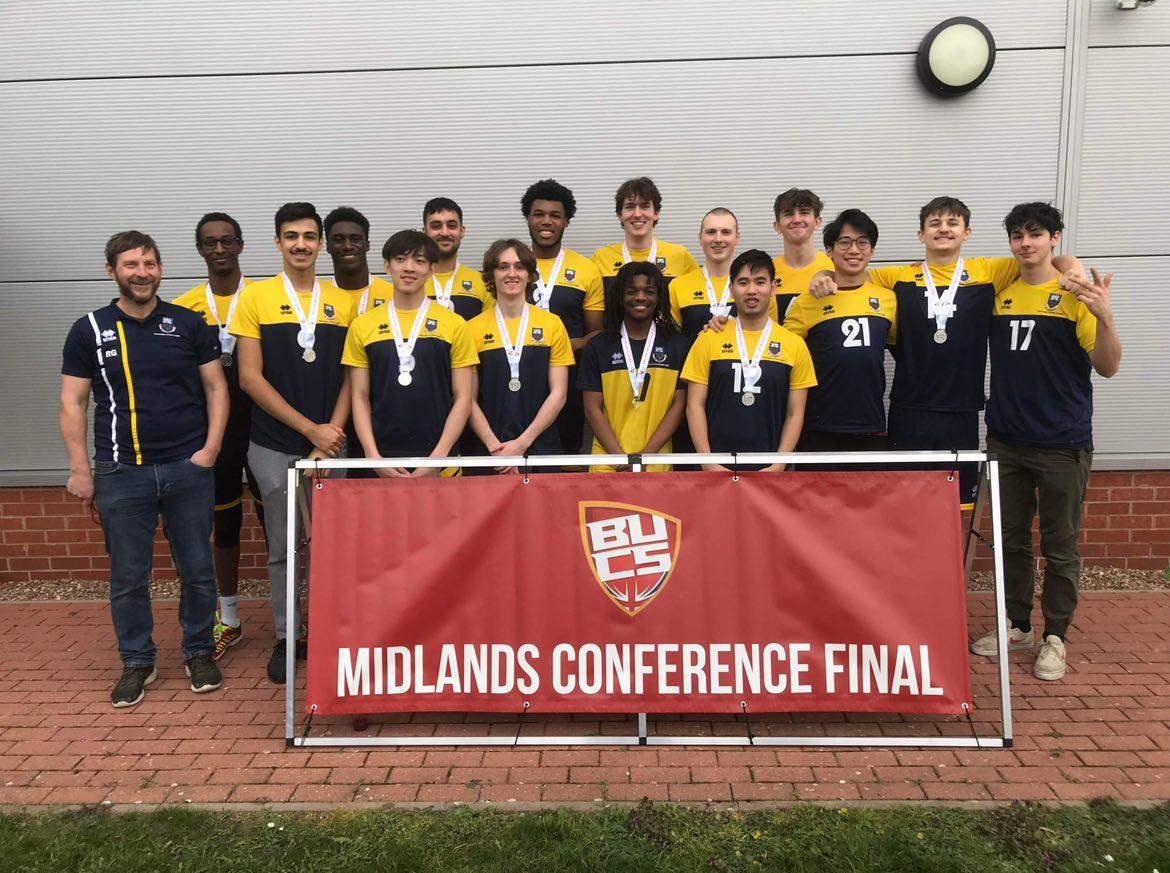

“We started strong the conference cup with a comfortable 3-0 win against Coventry 2s, but our next game against Nottingham Trent was a real challenge. Their fast tempo caught us off guard, but we adapted quickly and managed to secure another 3-0 victory.”
“Our journey has been full of ups and downs, but our team’s hard work, dedication, and perseverance have brought us to the Conference Cup Finals”
“In the quarter-finals, we faced Nottingham 3s, having a few ofour friends were on the opposing team made it even more of a must-win game for
us, and the competitive energy was evident from the start. Nottingham 3s were nearly a louder team than us and brought the heat. However, we rose to the challenge and secured a 3-1 victory.”
“The semi-finals were against Oxford Brookes, who we had beaten in the quarter-finals last year. They came back looking for revenge, but we swept them 3-0, although the game was incredibly close with all sets within five points. We even made a sixpoint comeback to win the second set on set point! Our journey has been full of ups and downs, but our team’s hard work, dedication, and perseverance have brought us to the Conference Cup finals.”
“And now, we face our biggest challenge yet, as we go up against ARU in the Conference Cup finals. ARU have already beaten us twice in the league this season, making us the underdogs going into the final. But we plan on giving it our all and leaving everything on the court to try and secure the trophy. This match promises to be intense, exciting, and filled with non-stop action.”
Although UEA suffered a 3-0 defeat in the conference cup final against ARU, they are far from defeated. The team fought hard and showed tremendous determination against a tough opponent.
UEA Volleyball said: “We may have been humbled by ARU’s performance, but we are already looking forward to next year’s conference cup with a burning desire to do better. We will use this experience to improve and come back stronger,faster, and more determined than ever before.”
Women’s Lacrosse 1s have eased their way to the final.
In the first round, UEA faced Nottingham 5s which saw UEA make a strong start to their season with a 15-8 win and saw them set up a quarterfinal clash with Leicester 1s. in a
tightly contested game, UEA managed to get the better of their opponents in a terrific 9-5 win. UEA were set to face Birmingham in the semi-finals, but the matchup was cancelled, resulting in a walkover which sent UEA to the cup final.
It was a very snowy and cold final and unfortunately UEA lost 28-3. UEA Lacrosse said: “Everyone played amazingly, and Warwick are the best team in the midlands league so everyone’s very happy to get their silver medals.”

Daily walk prevents one in 10 early deaths
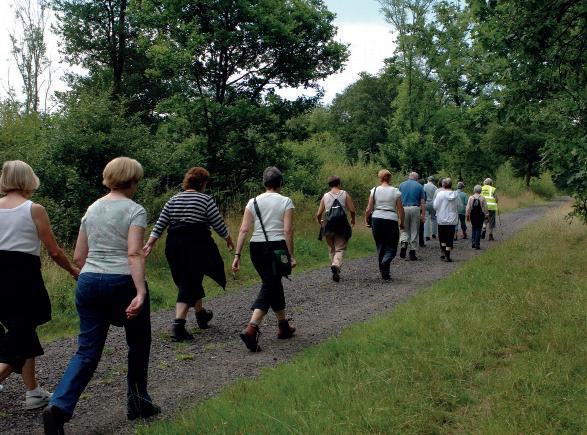 Louise Collins Sports Writer
Louise Collins Sports Writer
You might be wondering how to make sure you’re getting your steps in, or how to increase your exercise when you feel like you have zero time. Luckily, Norwich is a walkable city, and you don’t even have to do that much exercise.
At the end of February, Cambridge University posted their research evaluating nonoccupational physical activity and the links to chronic diseases. Whilst the current recommendations suggest 150-300 minutes of moderate exercise a week (such as brisk walking, riding a bike, or even pushing a lawnmower), Cambridge University have found that you can do much less and still reduce risk of chronic disease.
Findings have shown that “appreciable health benefits
can be gained from 75 minutes per week or less of moderate activity” which works out to just eleven minutes a day!
The results point to lower risk of mortality, cardiovascular diseases, and several cancers including bladder, kidney and oesophageal. In their study, they stated, “One in 10 premature deaths could have been prevented if everyone achieved even half the recommended level of physical activity.”
So, how can you make sure you’re getting at least eleven minutes a day in?
I’ve found that walking to and from campus every day is such an easy way to get a bit of exercise done – walking (or often in my case, speed walking) to campus does wonders for my mental health and my energy levels. So, if you tend to hop on the bus to campus because it’s easier,
maybe consider walking there. You can put on a podcast or your favourite album and exercise your mind as you exercise your body.
If my housemates need to pop to the shop to pick up a few bits, nine times out of ten, I’ll go with them just to get a bit of air and to stretch my legs. It’s about a seven-to-ten-minute walk there, and the same back, and I’d never really thought of it as ‘exercise’ before, but I guess it is.
Alternatively, if you can’t walk to campus, maybe try walk around campus. If you’re cramped in class all day, or you’re holed up in the library to get that essay written, take a fifteen, twentyminute break to walk around the UEA lake. It’s an excellent chance to get your exercise done, stretch your body out, and de-stress for a little while.
Taking your mind off work to
surround yourself with nature, even for half an hour or less is great for your mental health, so combining it with exercise kills two birds with one stone!
I always make the excuse that I have no time for exercise, and it’s usually to the detriment of my
own health but walking for eleven minutes a day really can have a huge impact on your health. So, if you’re starting to feel restless, or you’re needing a little pick-me-up, head outside and wander around for a bit – you’ll feel so much better afterwards!
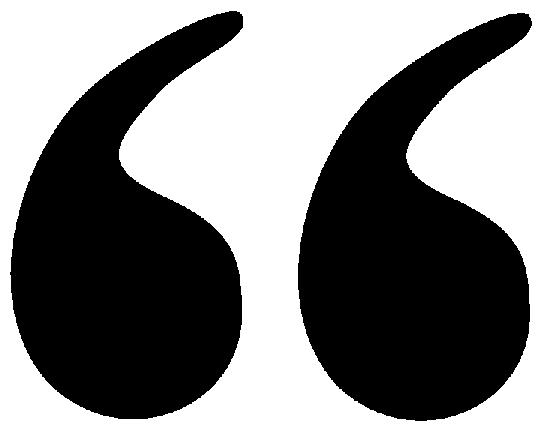
14th March 2023 24 Sport
Photo:Wikimedia Commons
Photo: UEA Lacrosse
Photo: UEA Volleyball









 Jamie Bryson
News Editor
Jamie Bryson
News Editor




































 Amelia Sarmouk Comment Writer
Amelia Sarmouk Comment Writer




















 Finlay Porter
Travel and Lifestyle Editor
Finlay Porter
Travel and Lifestyle Editor










 Louise Collins Sports Writer
Louise Collins Sports Writer
